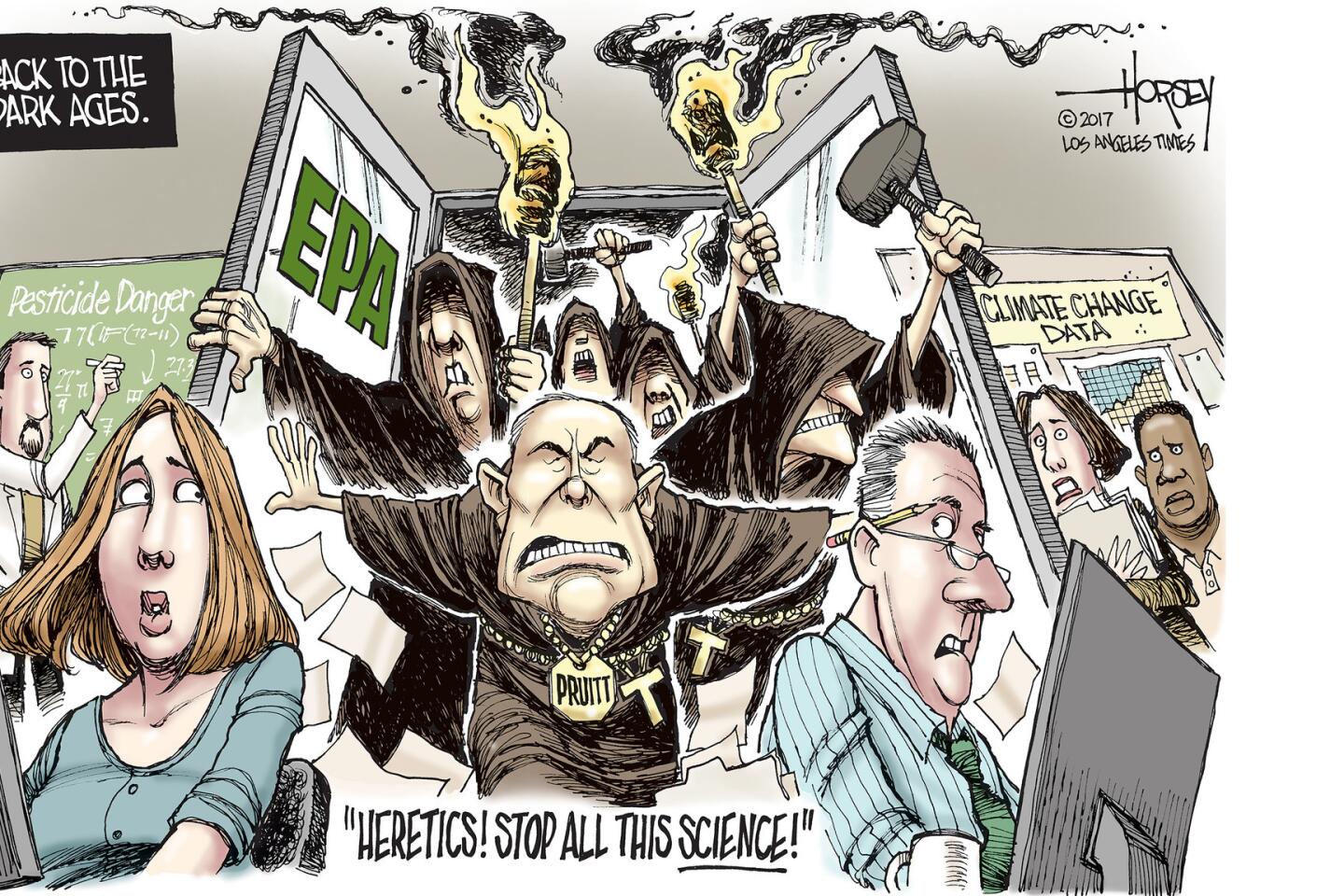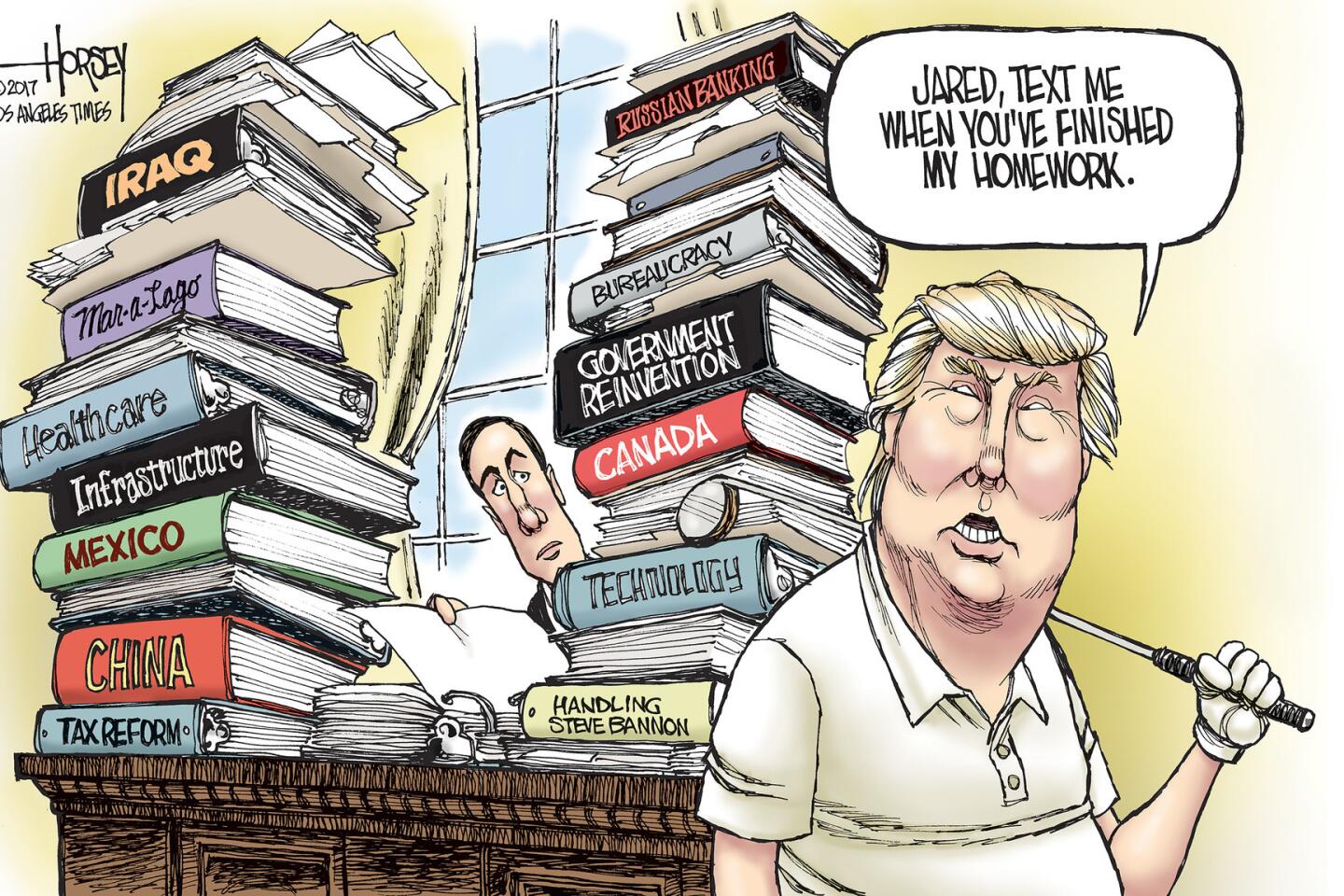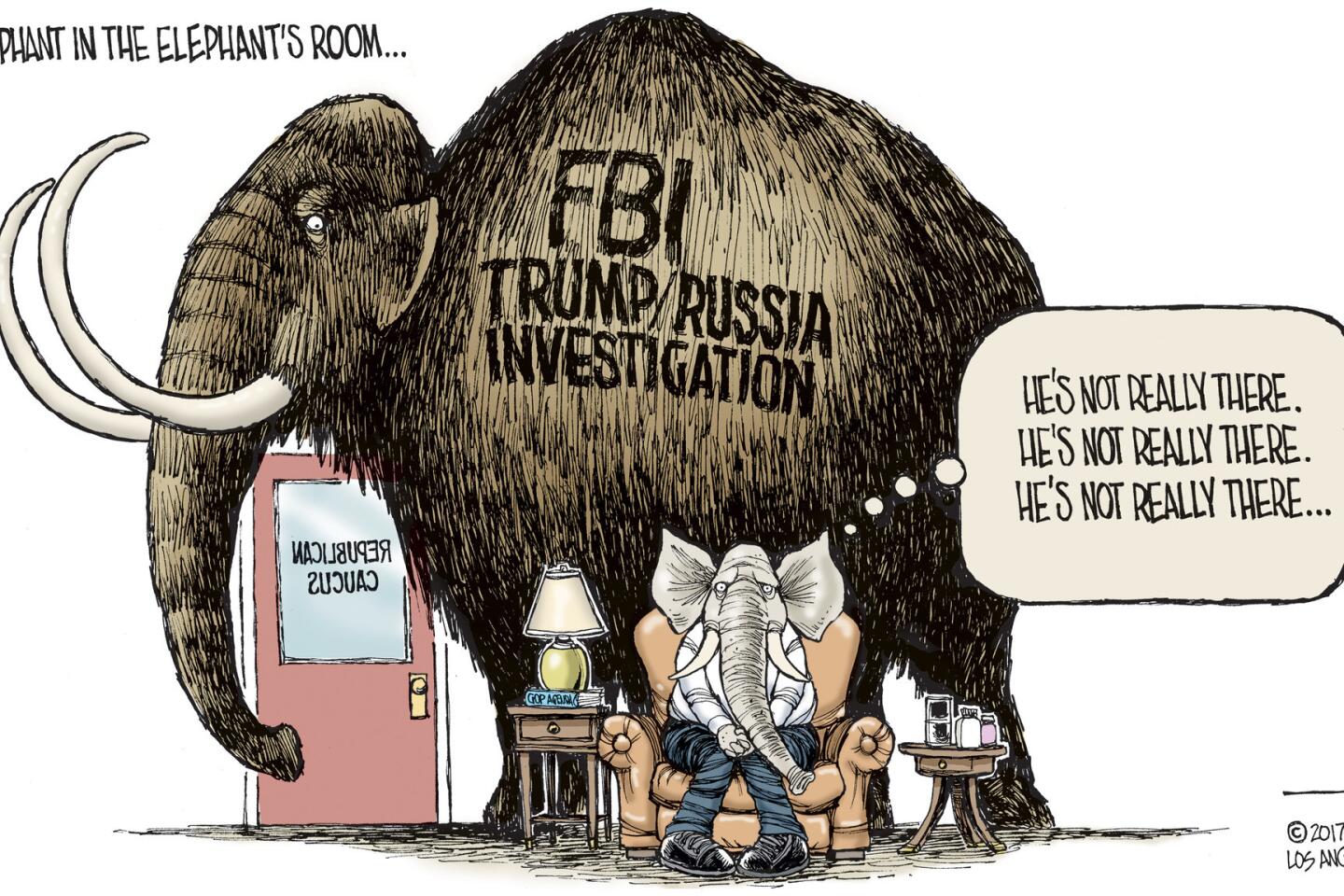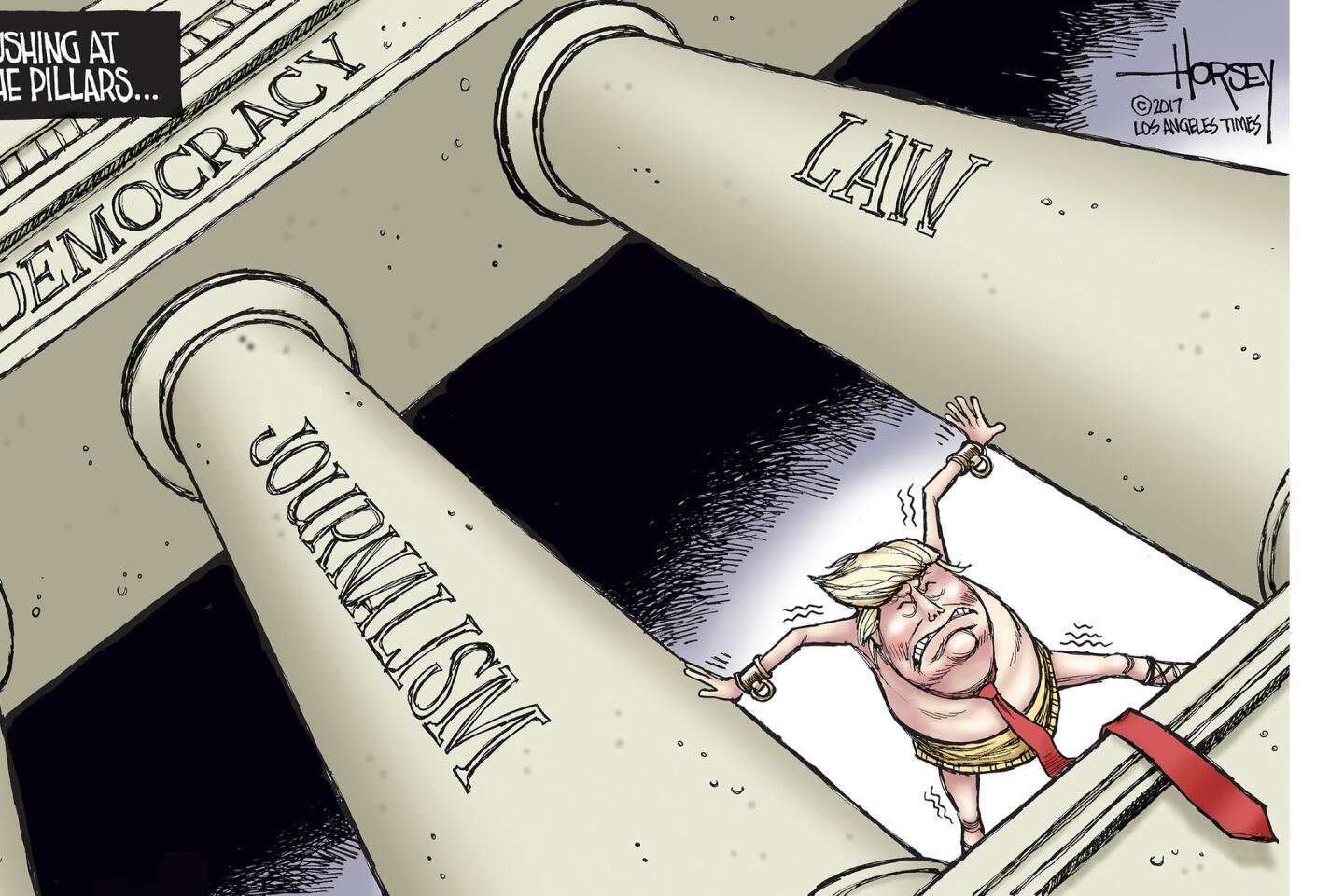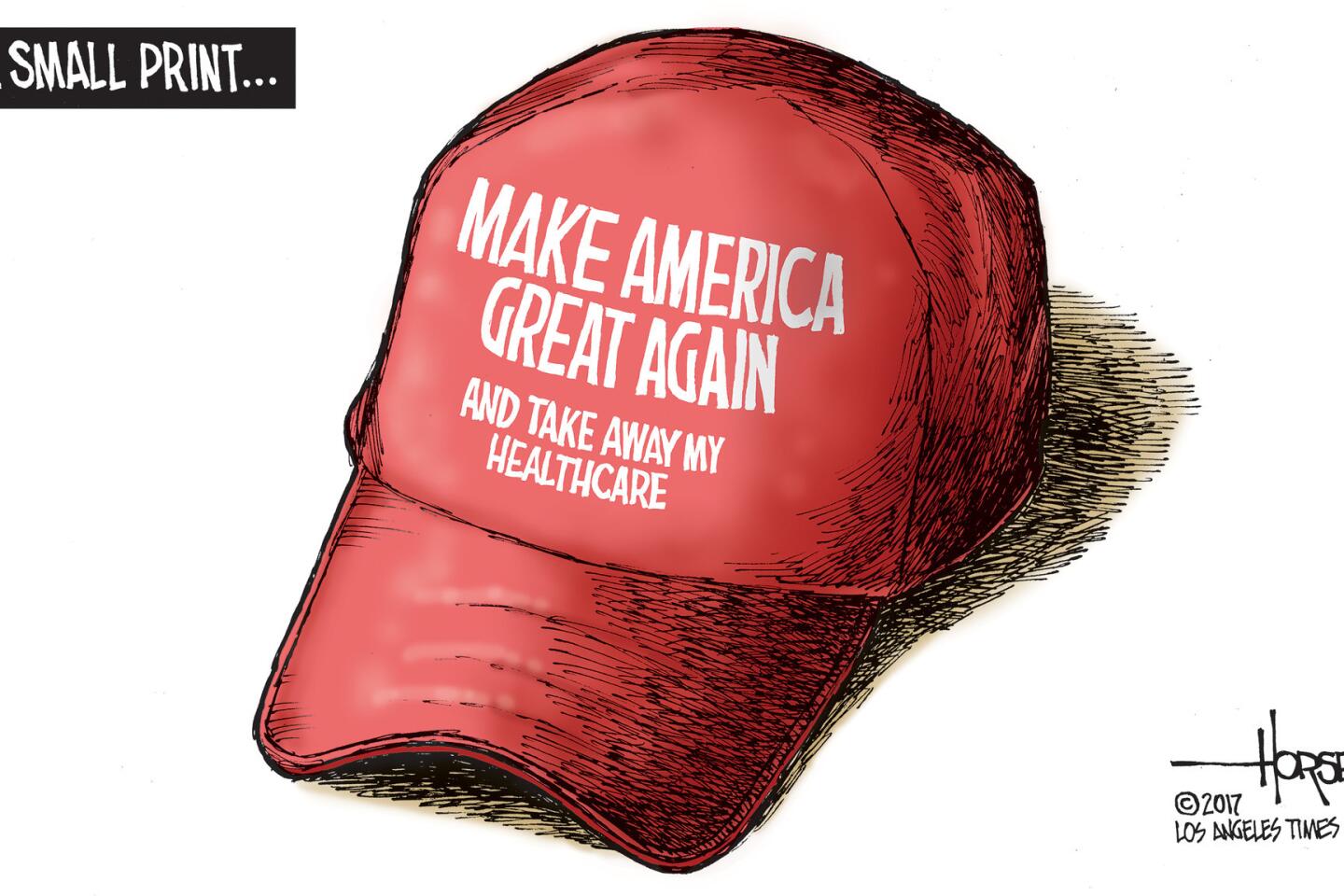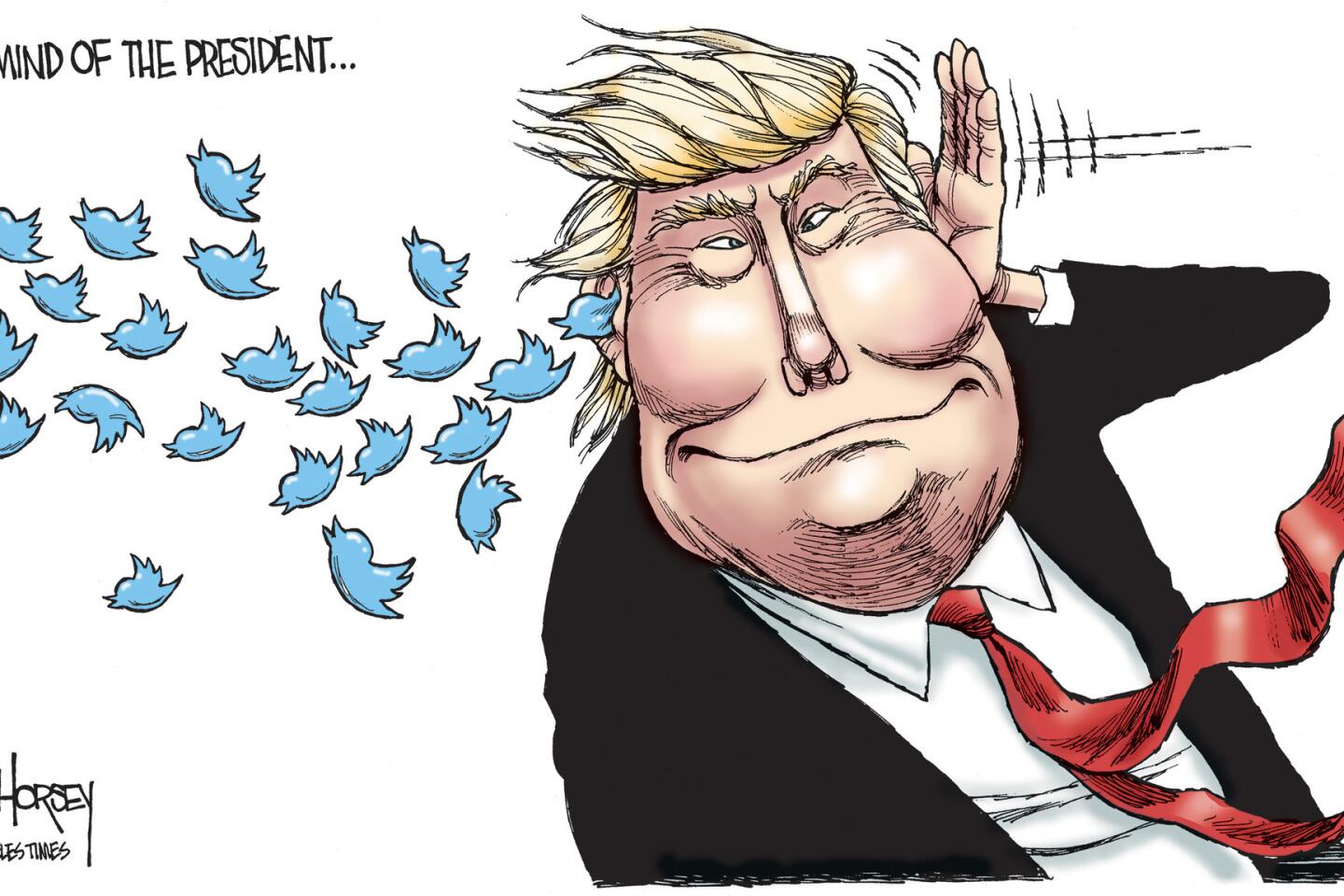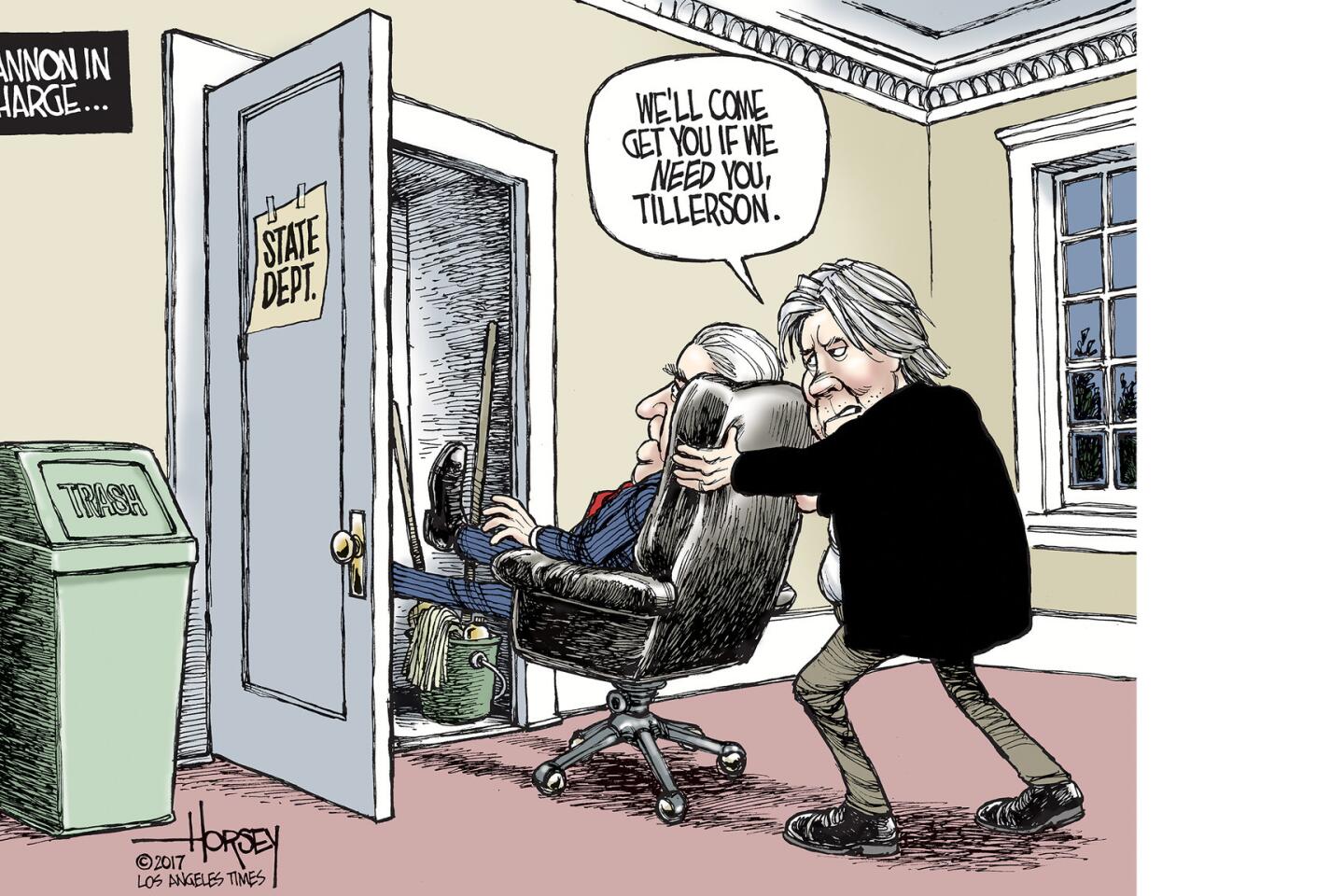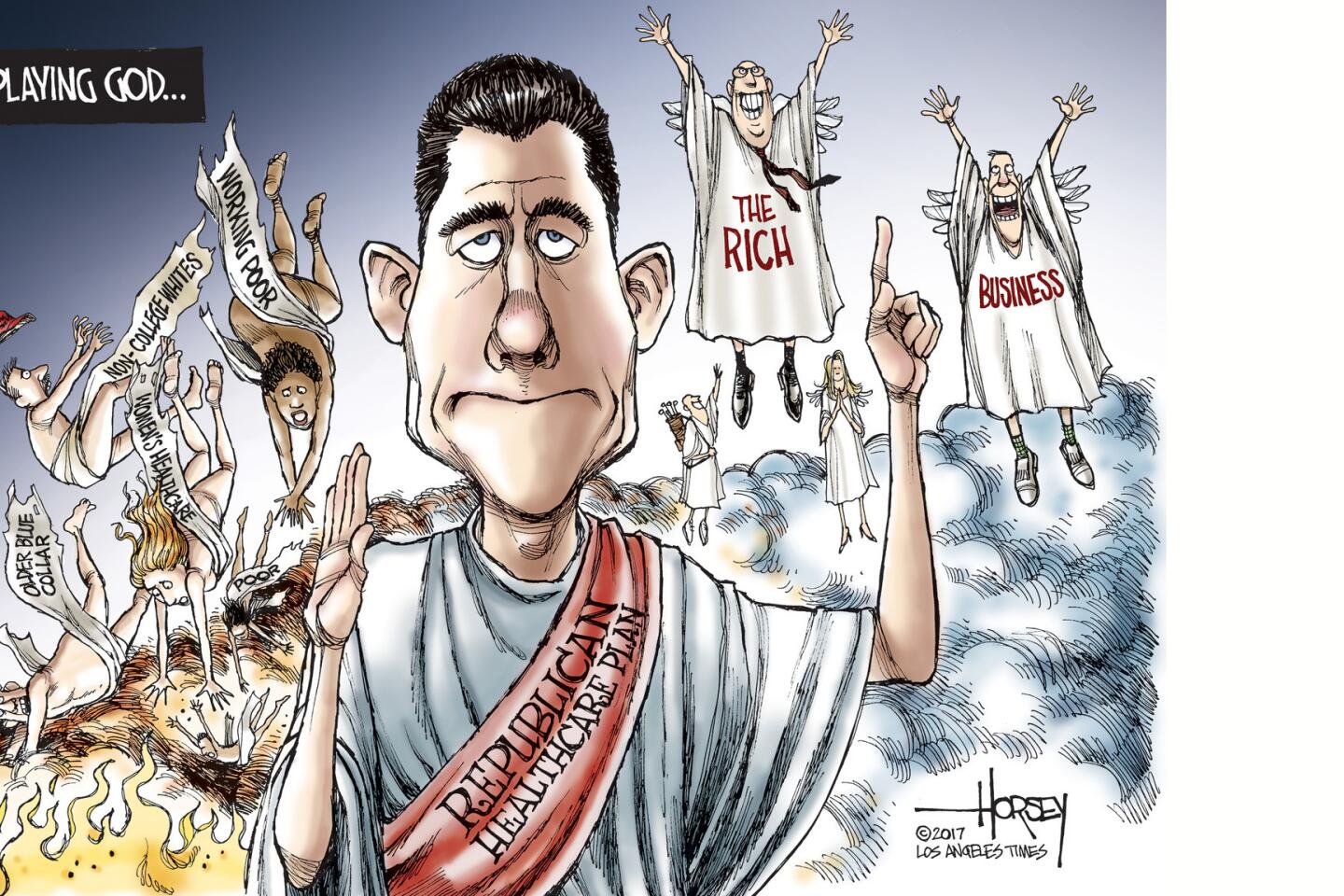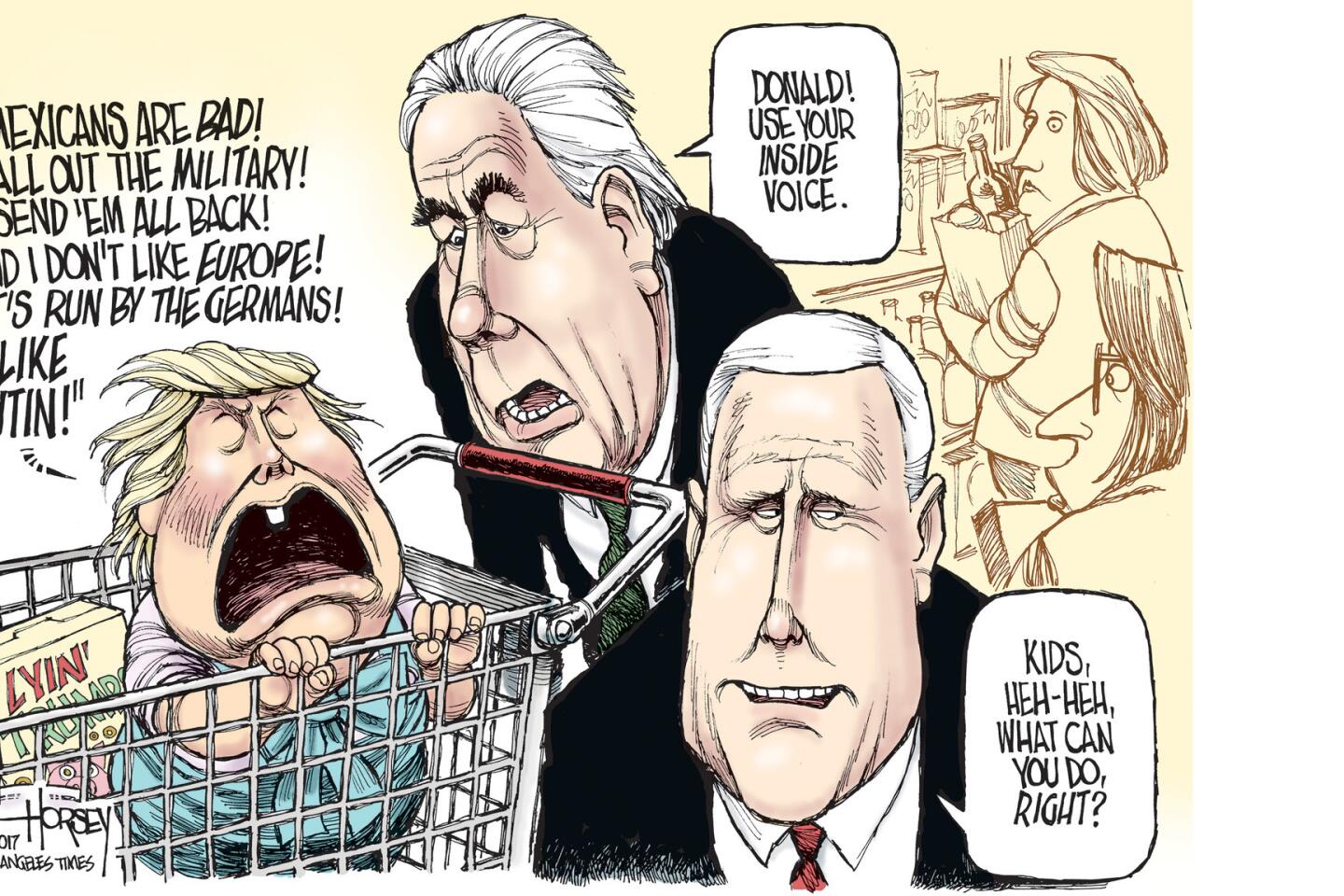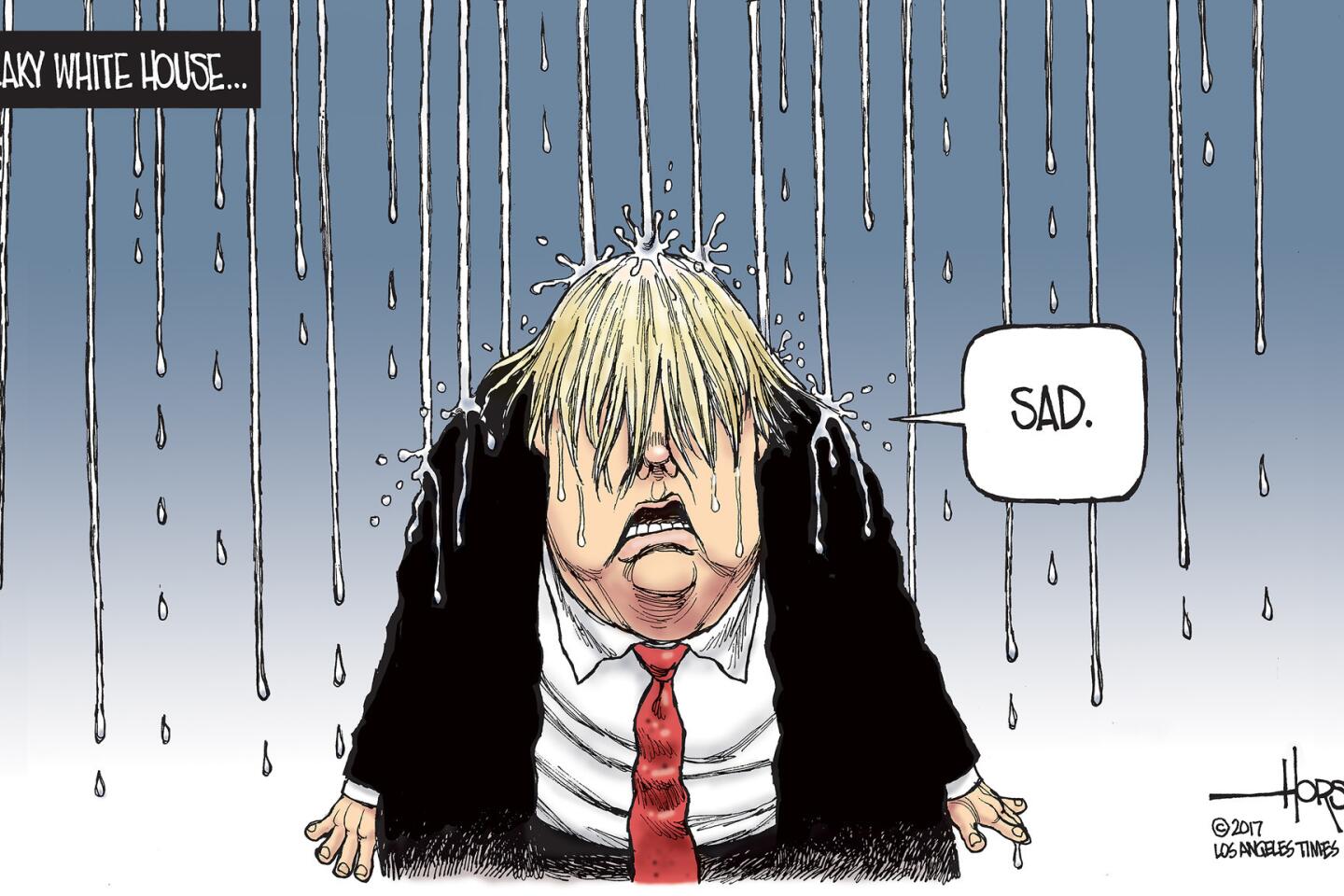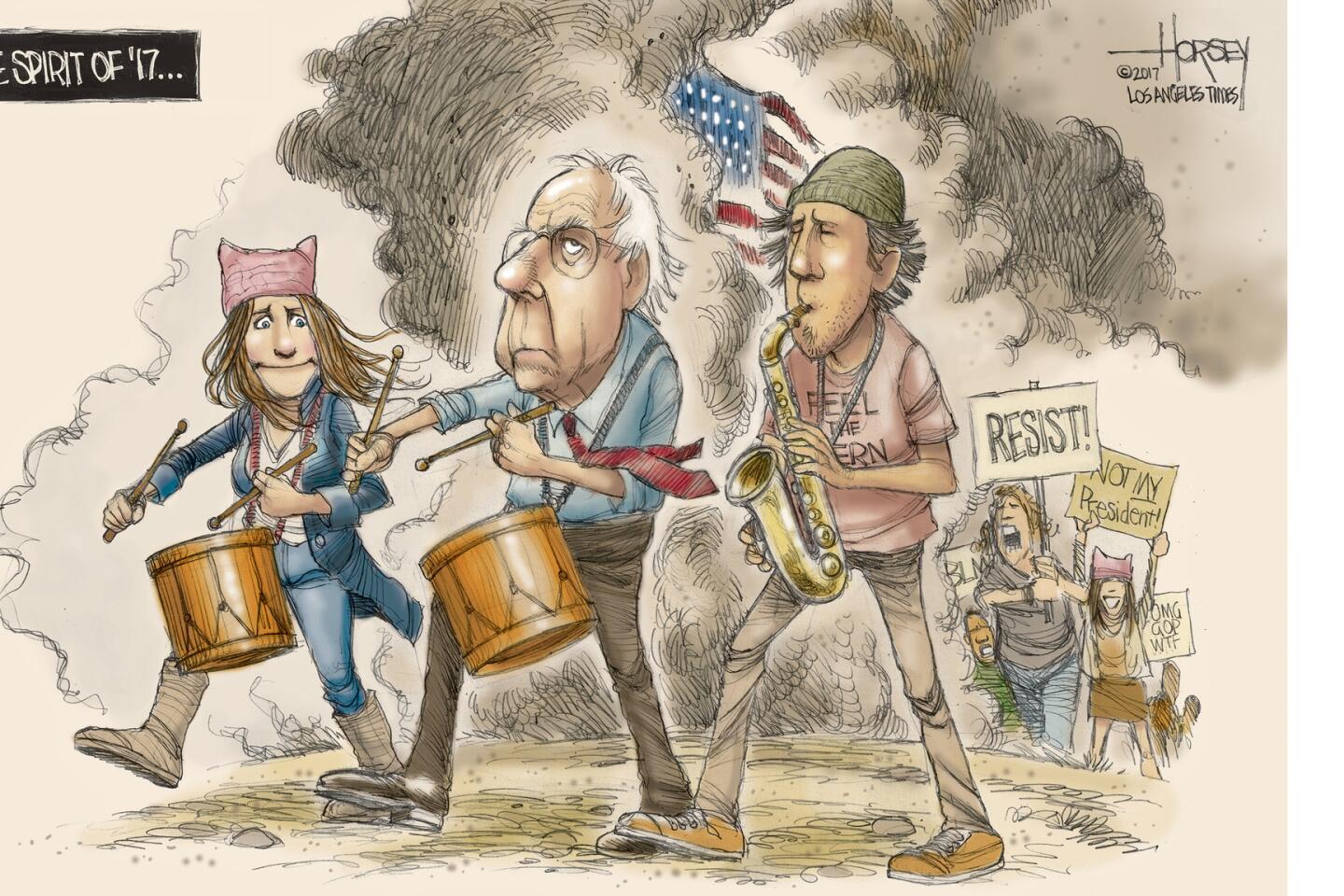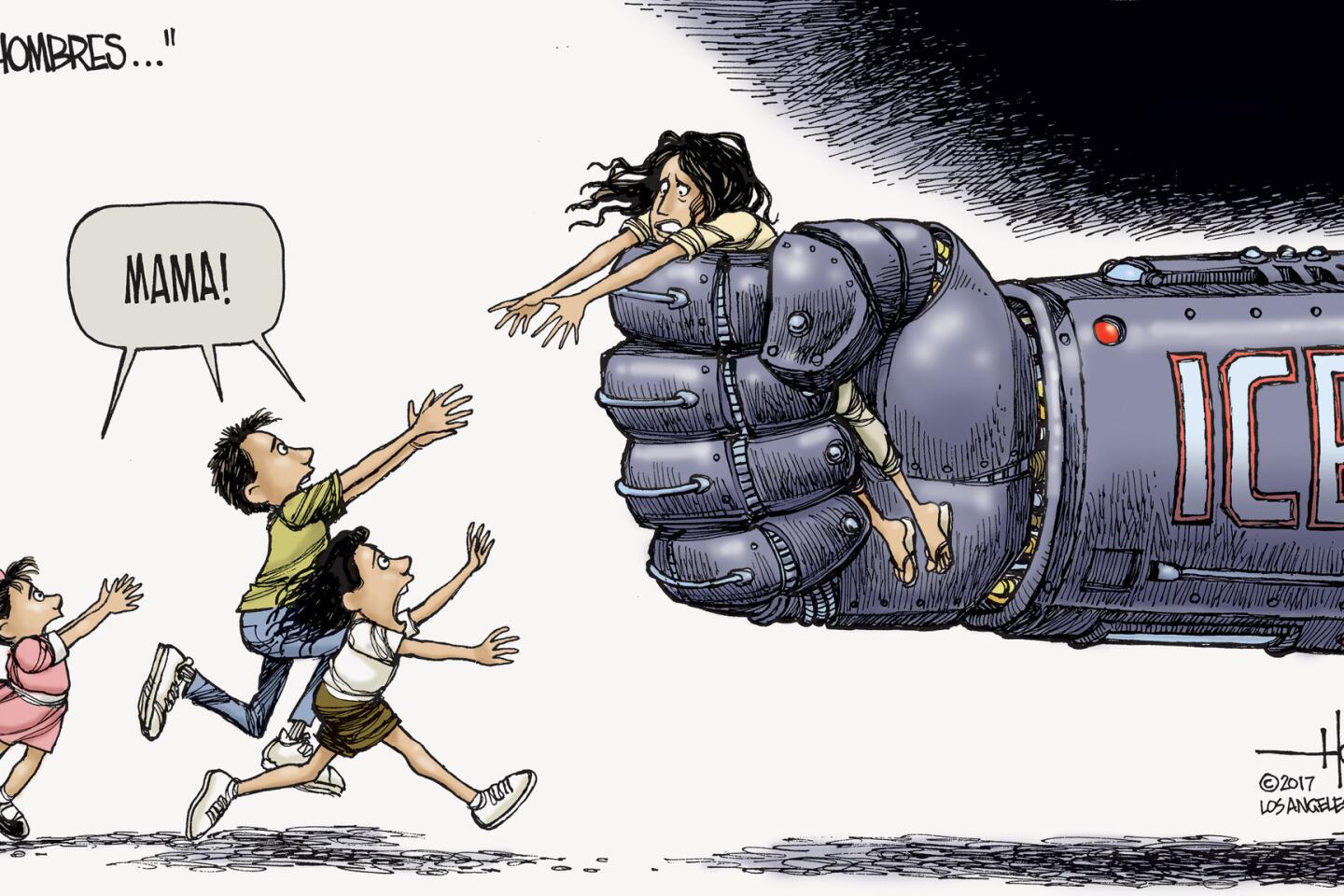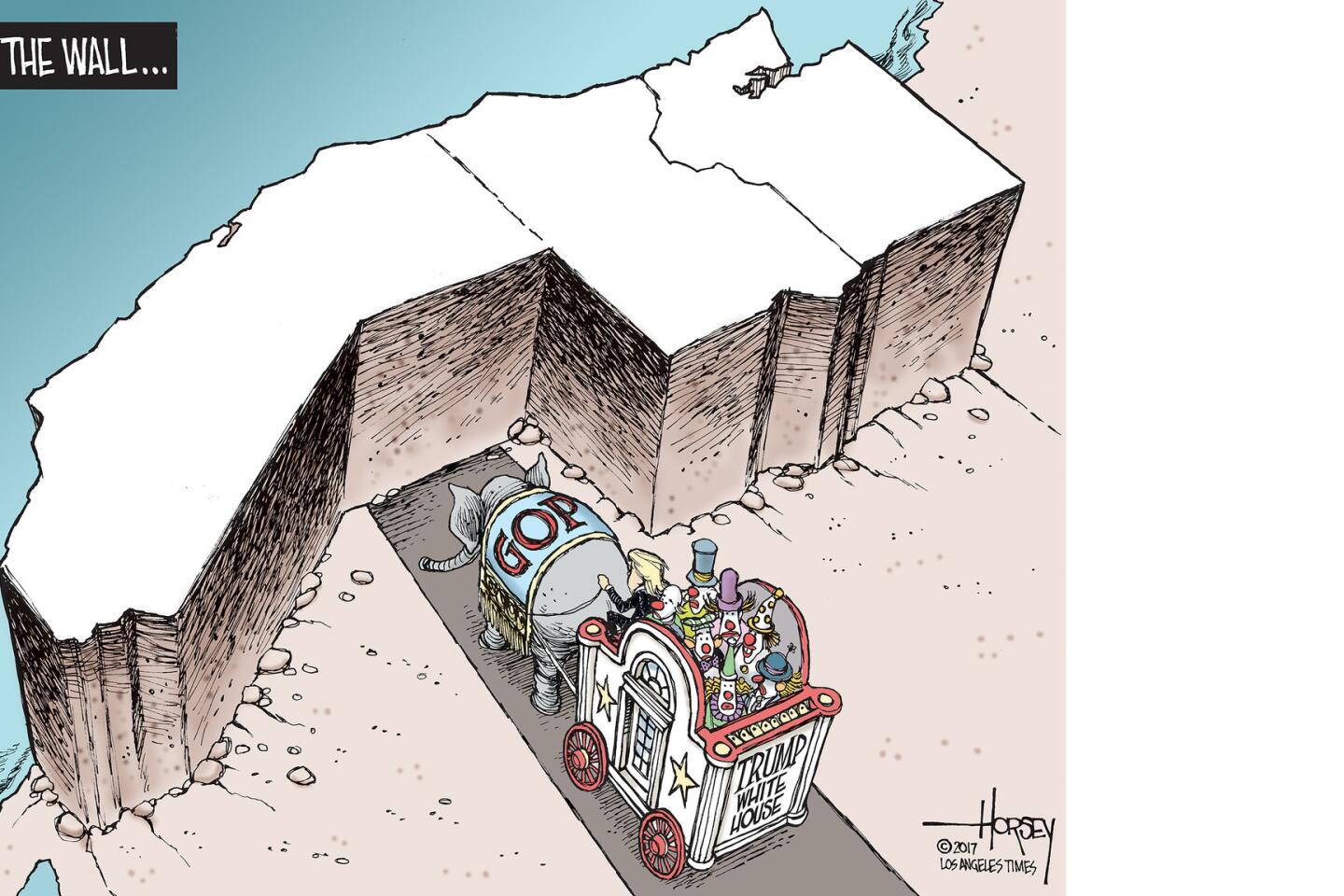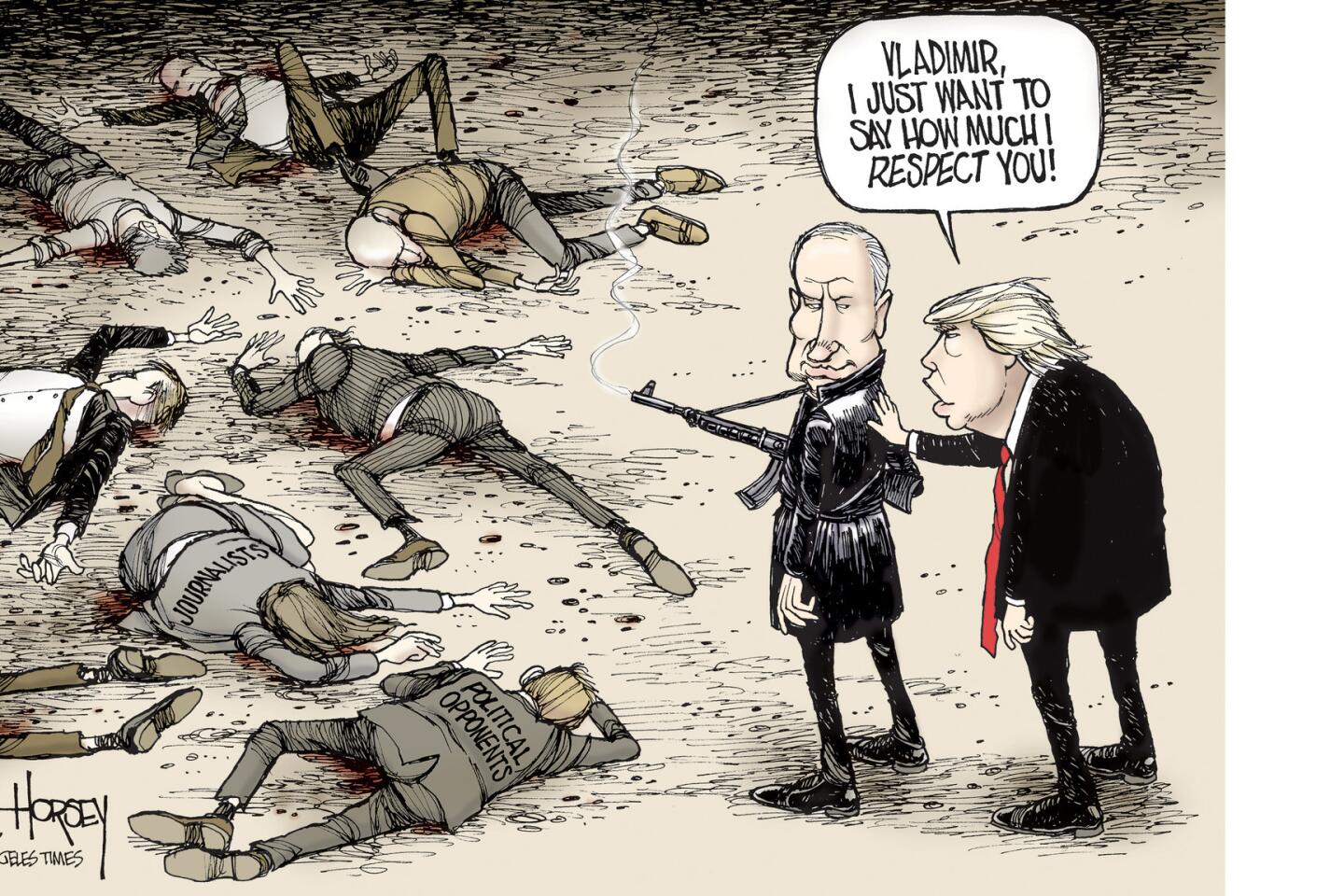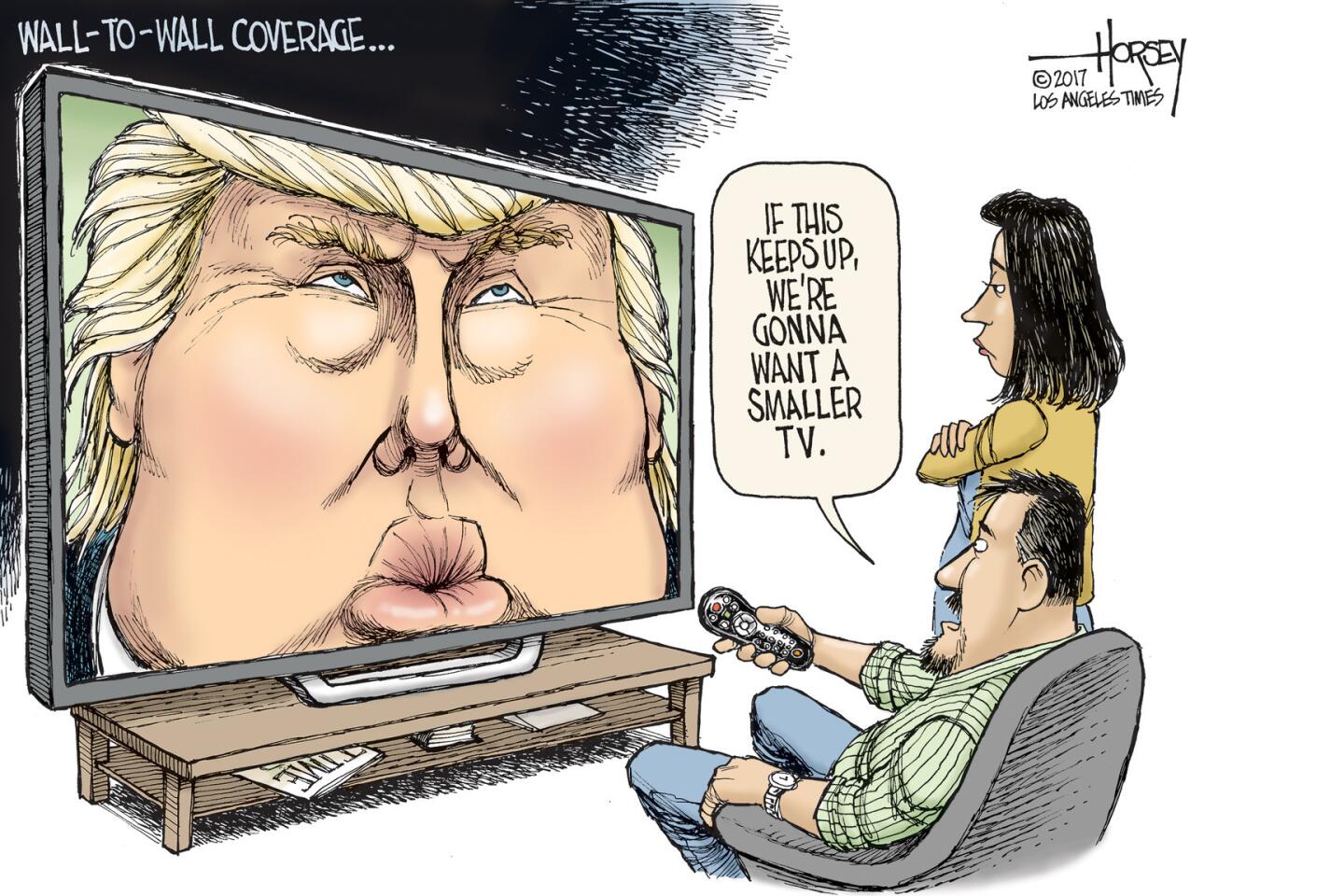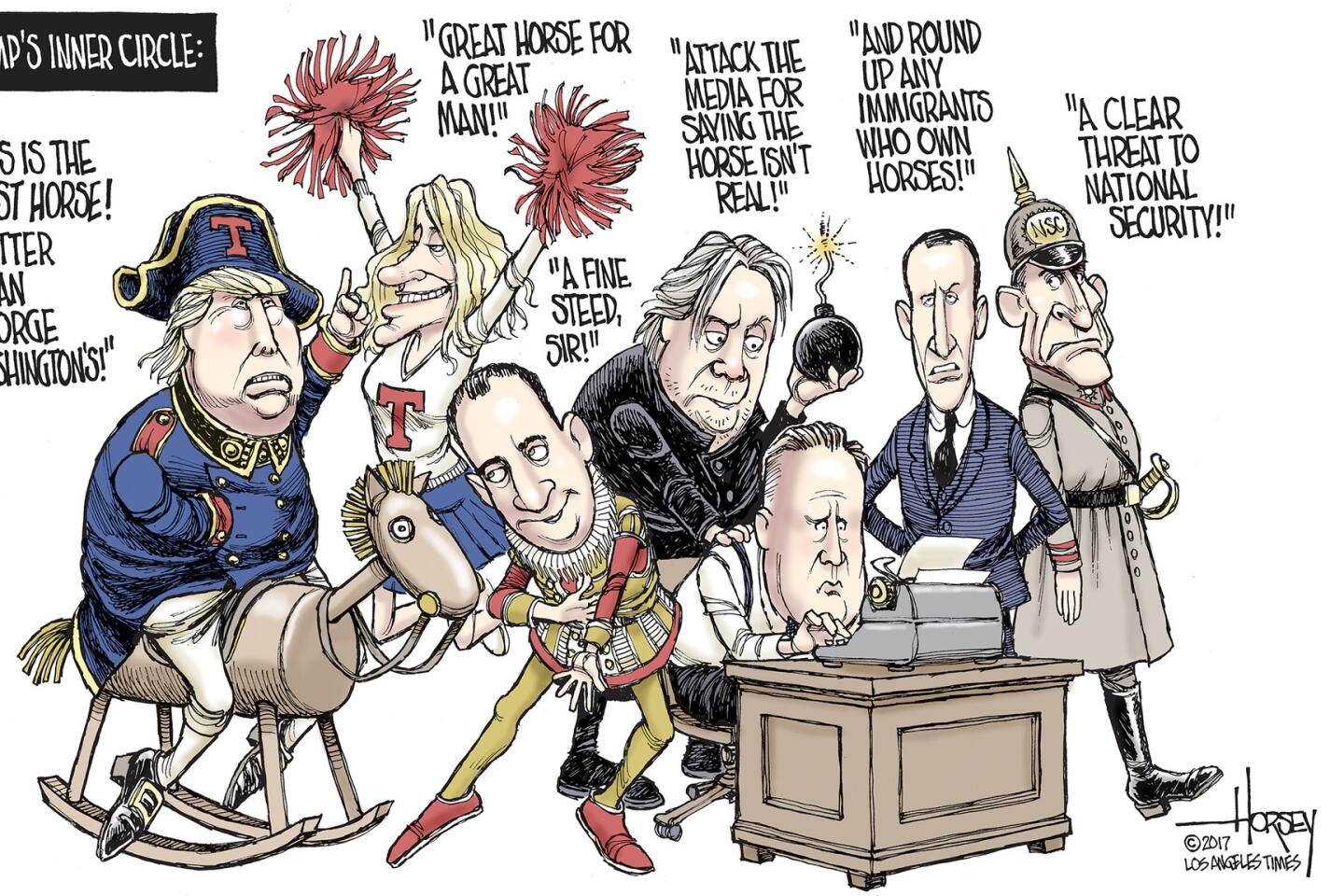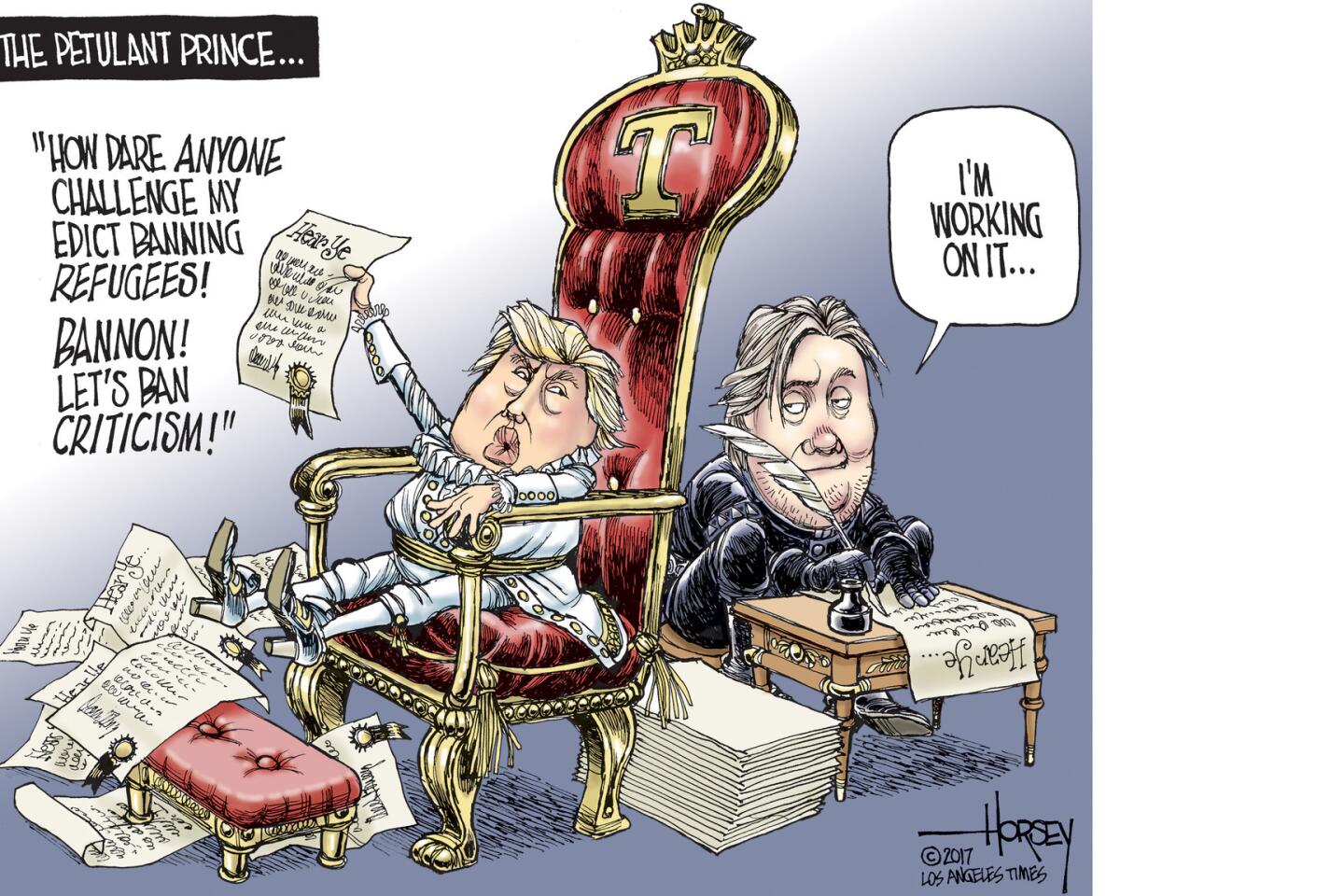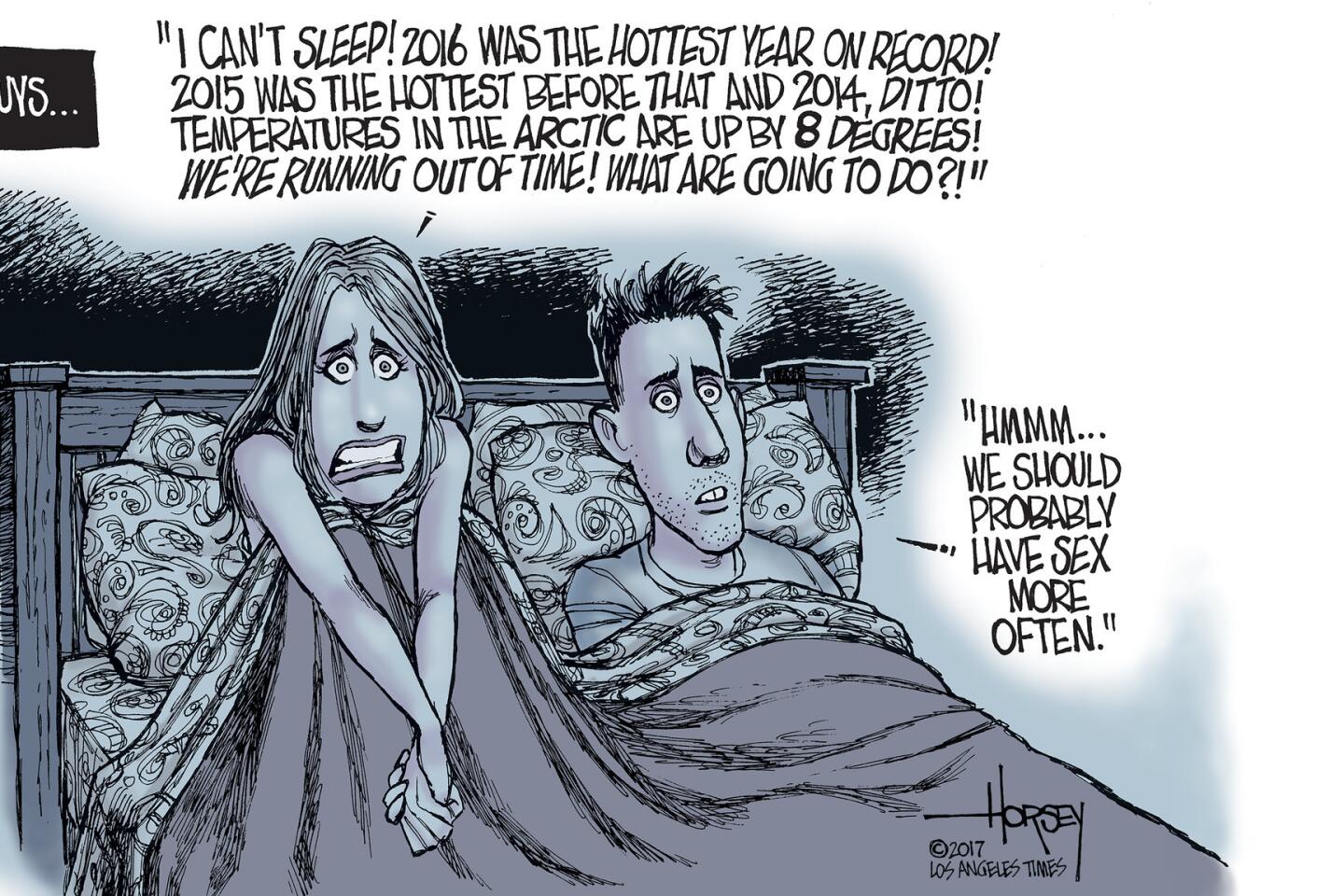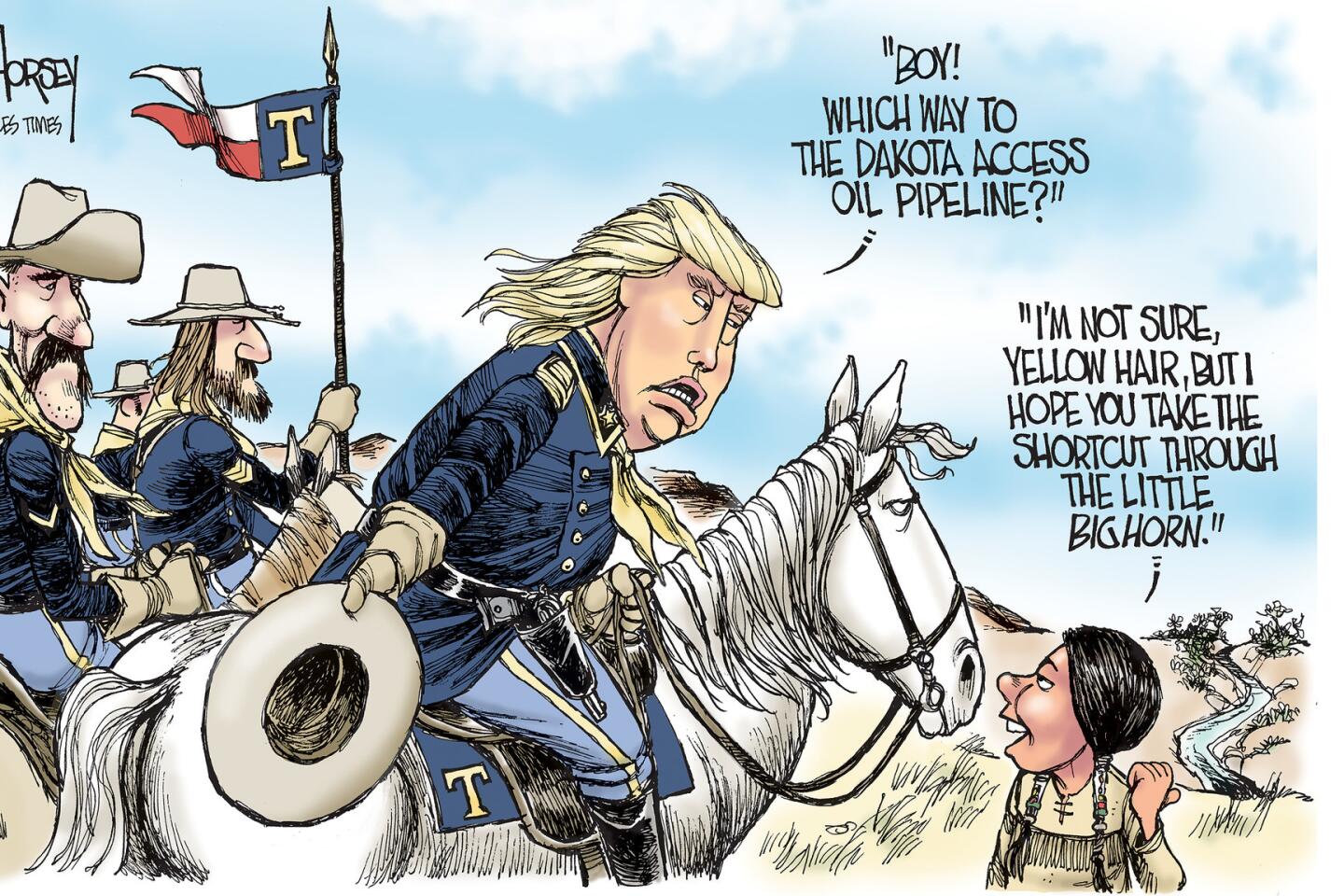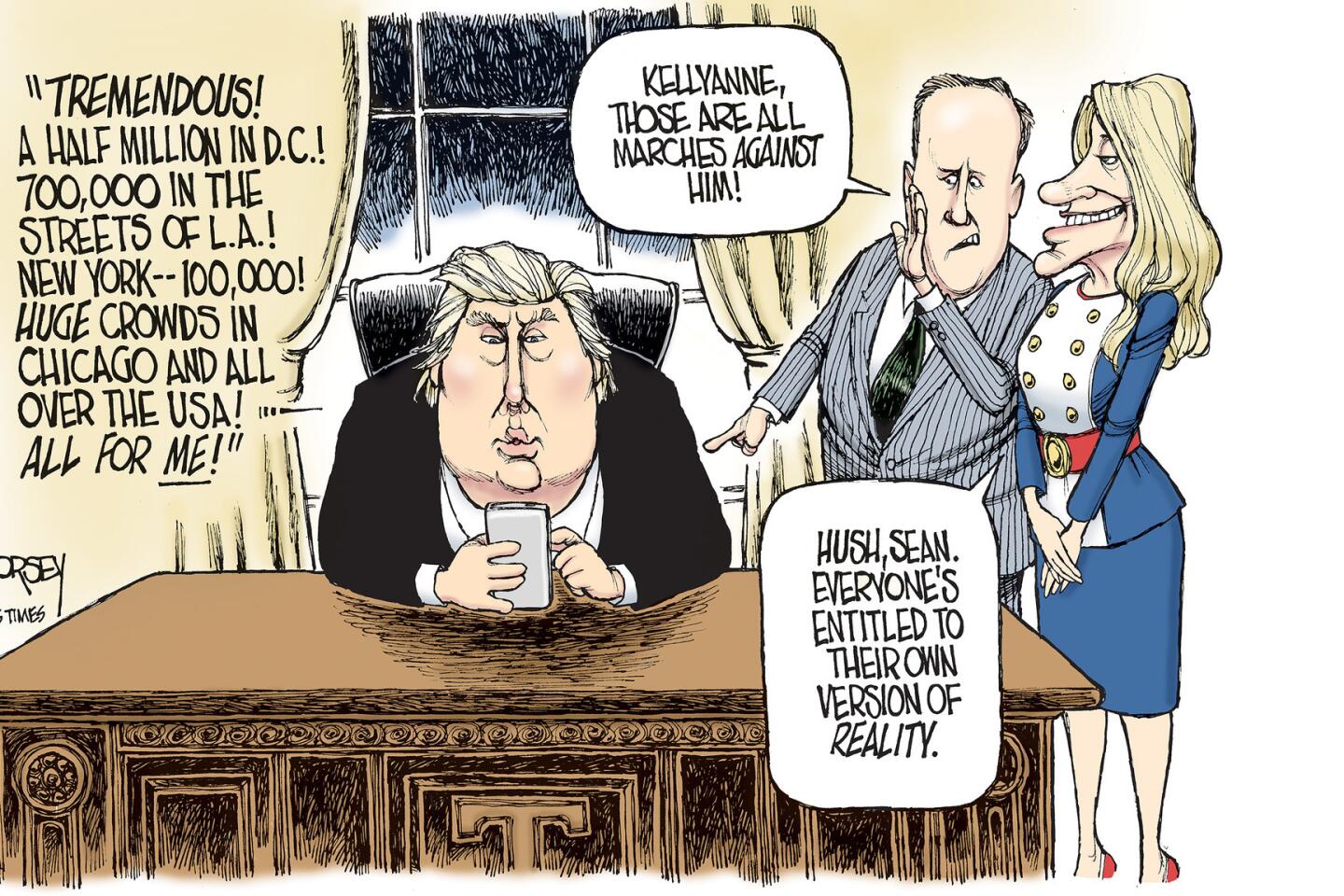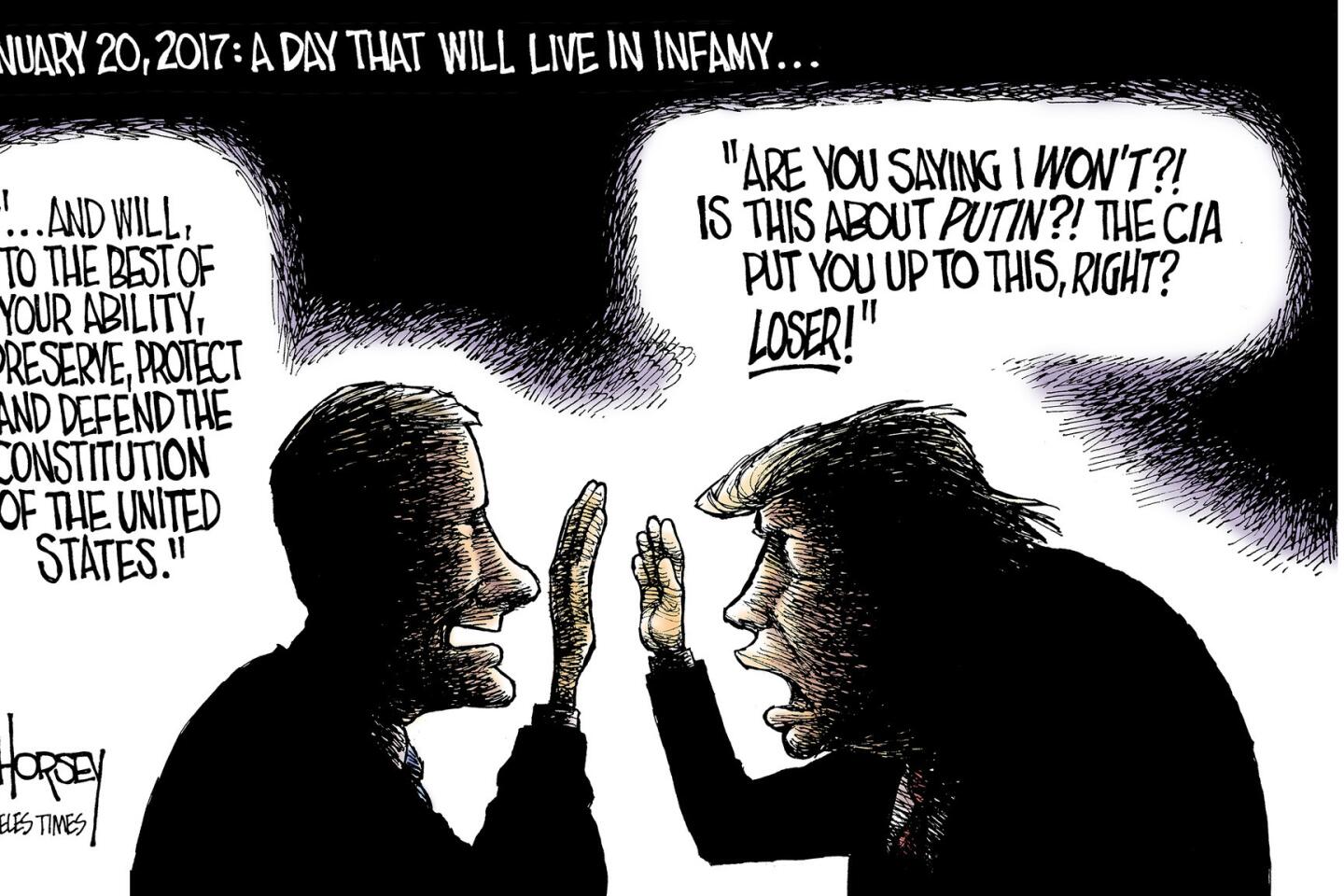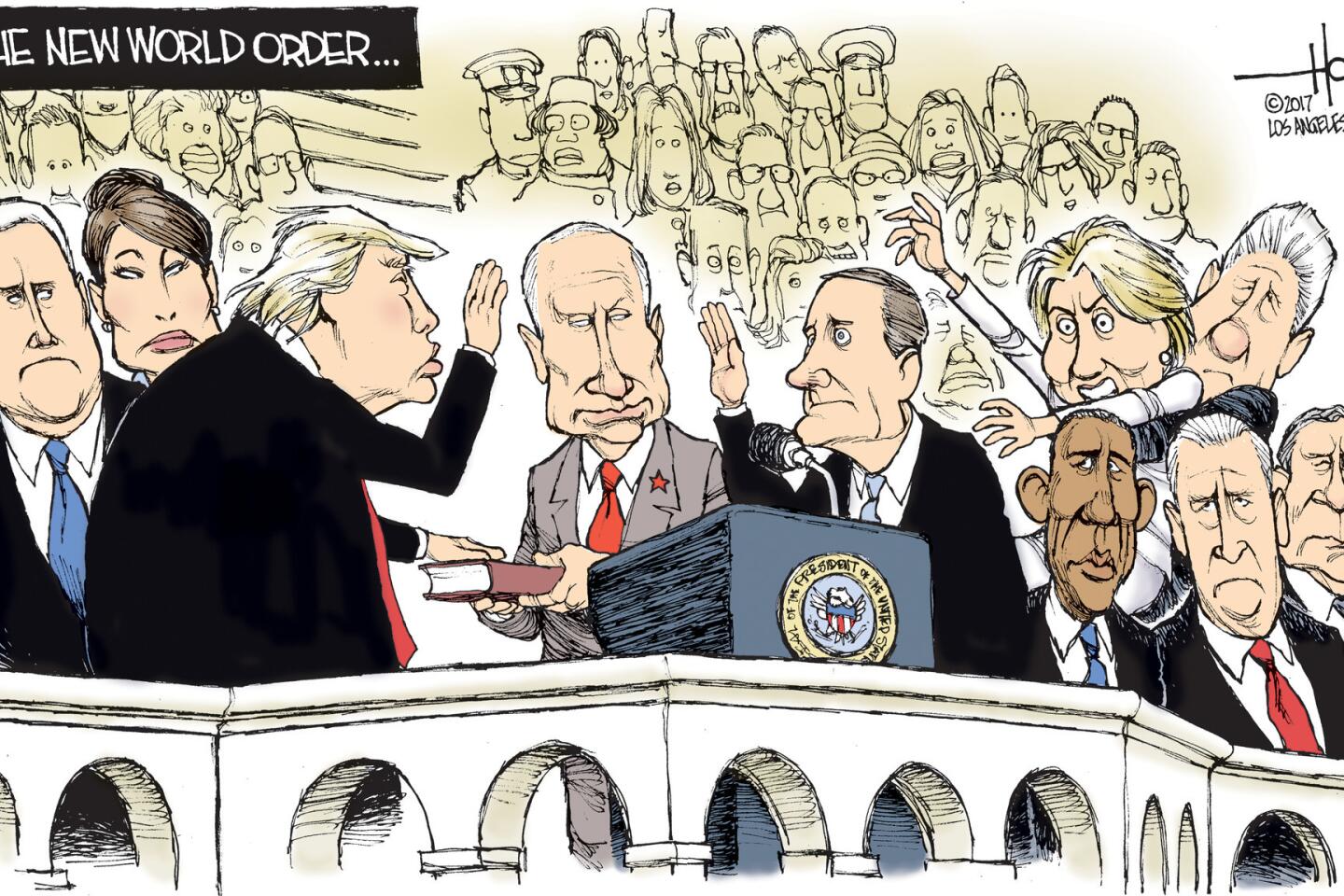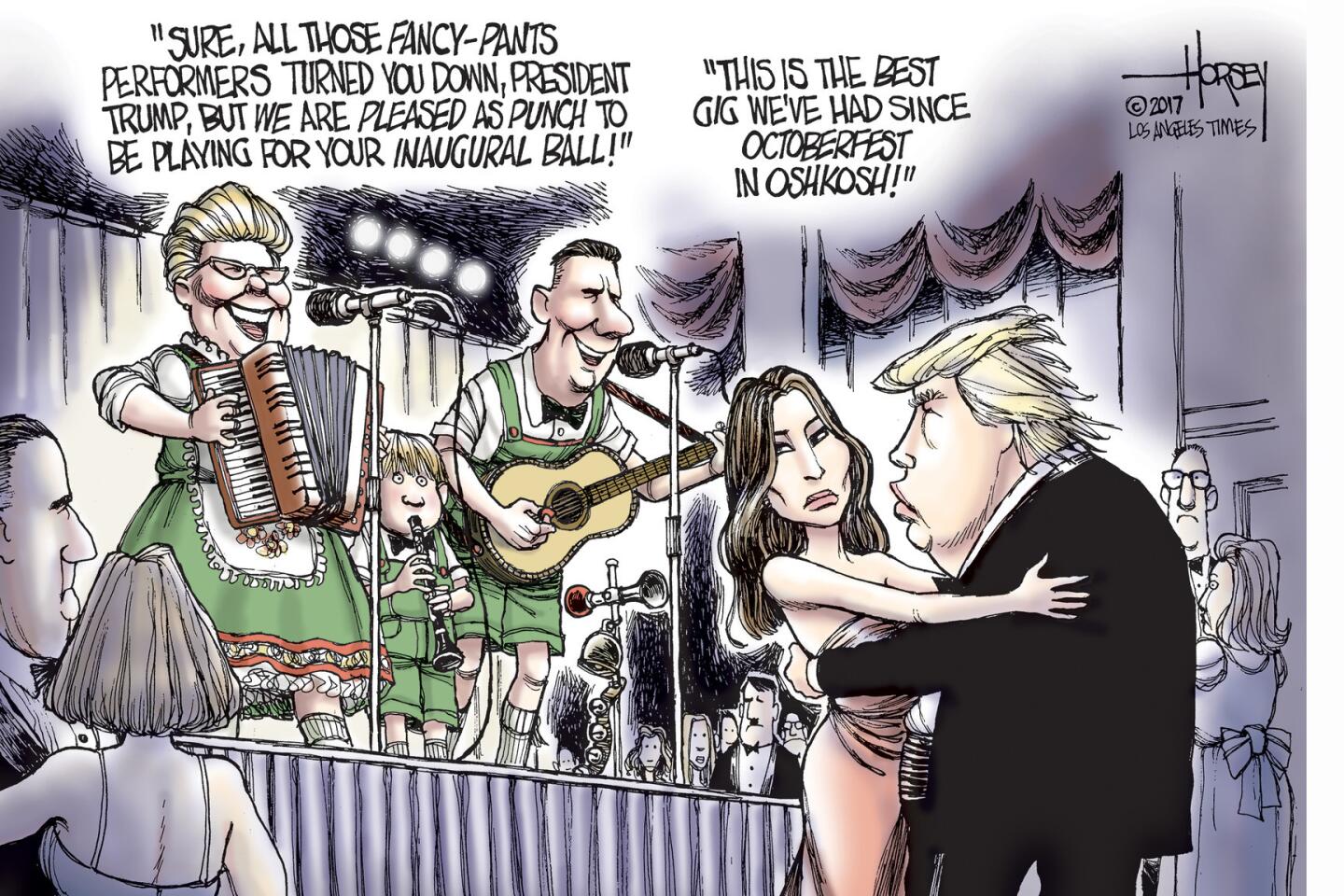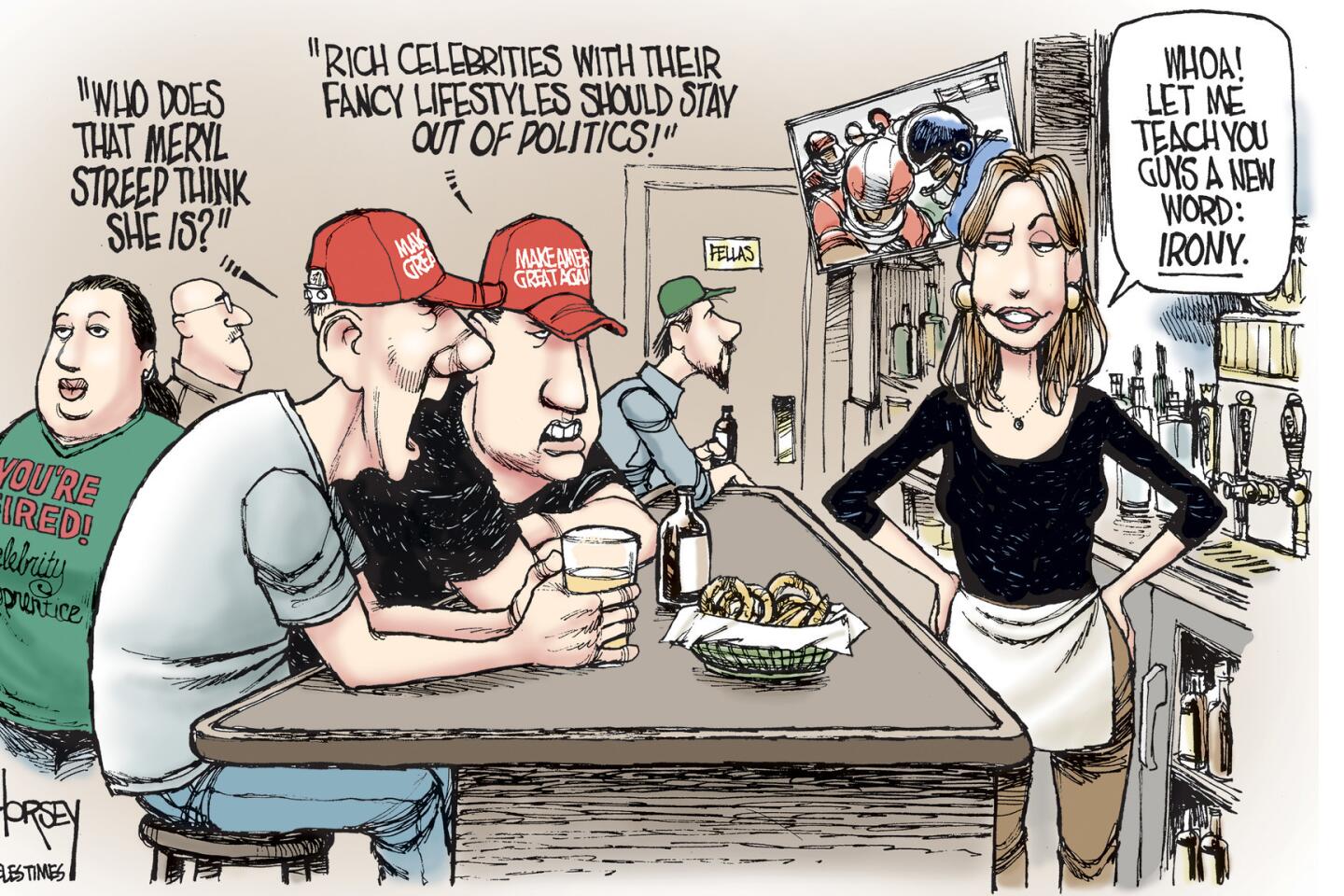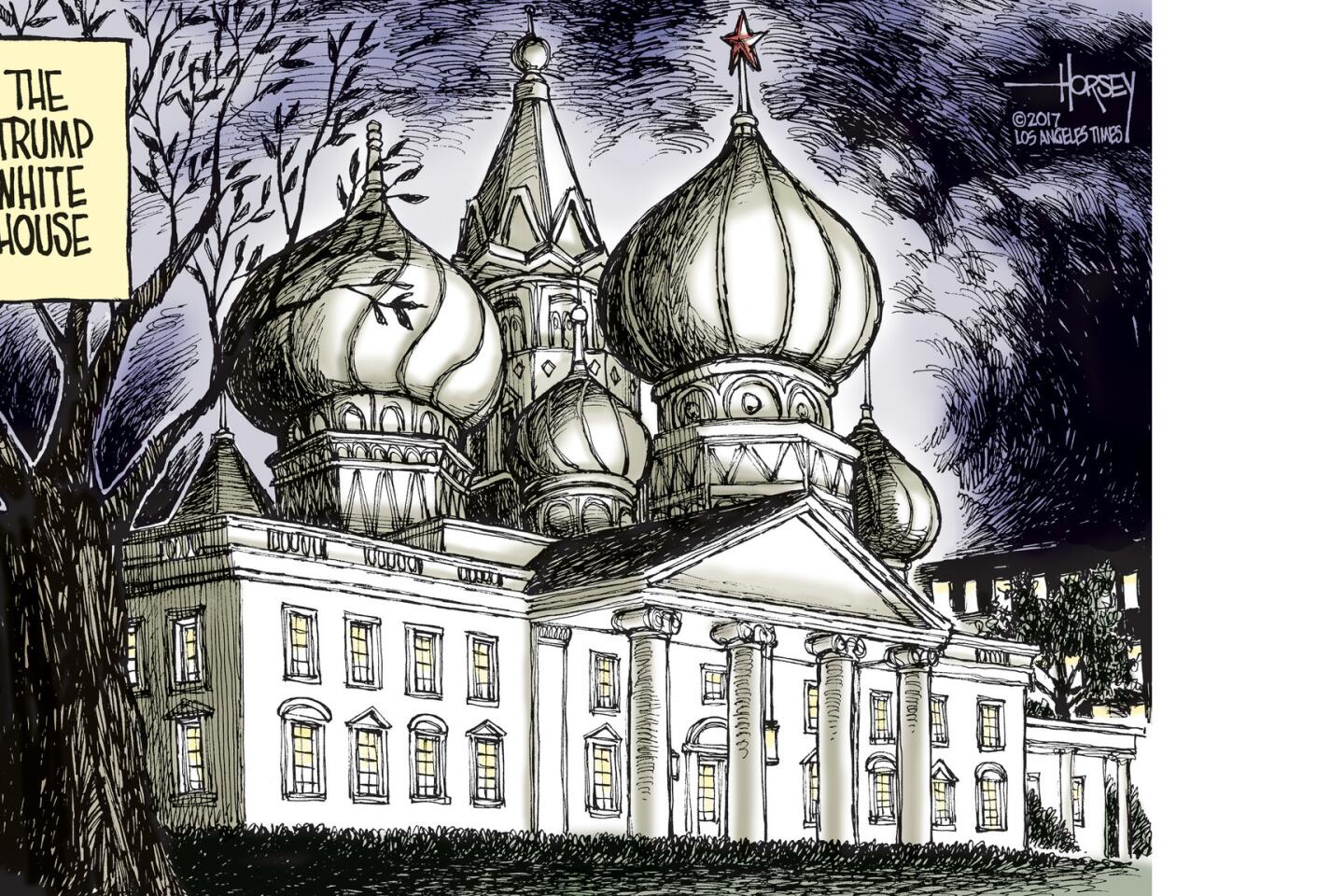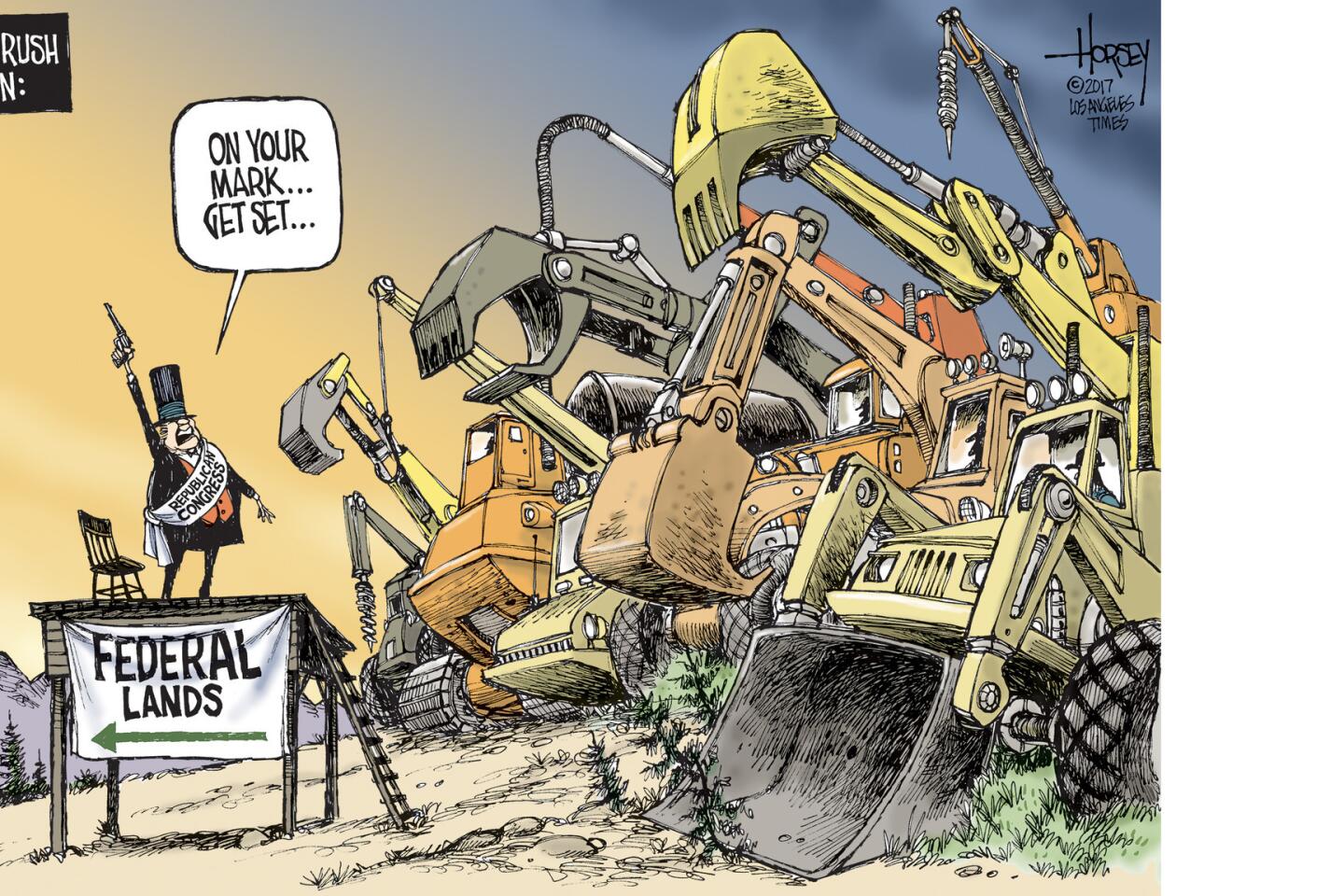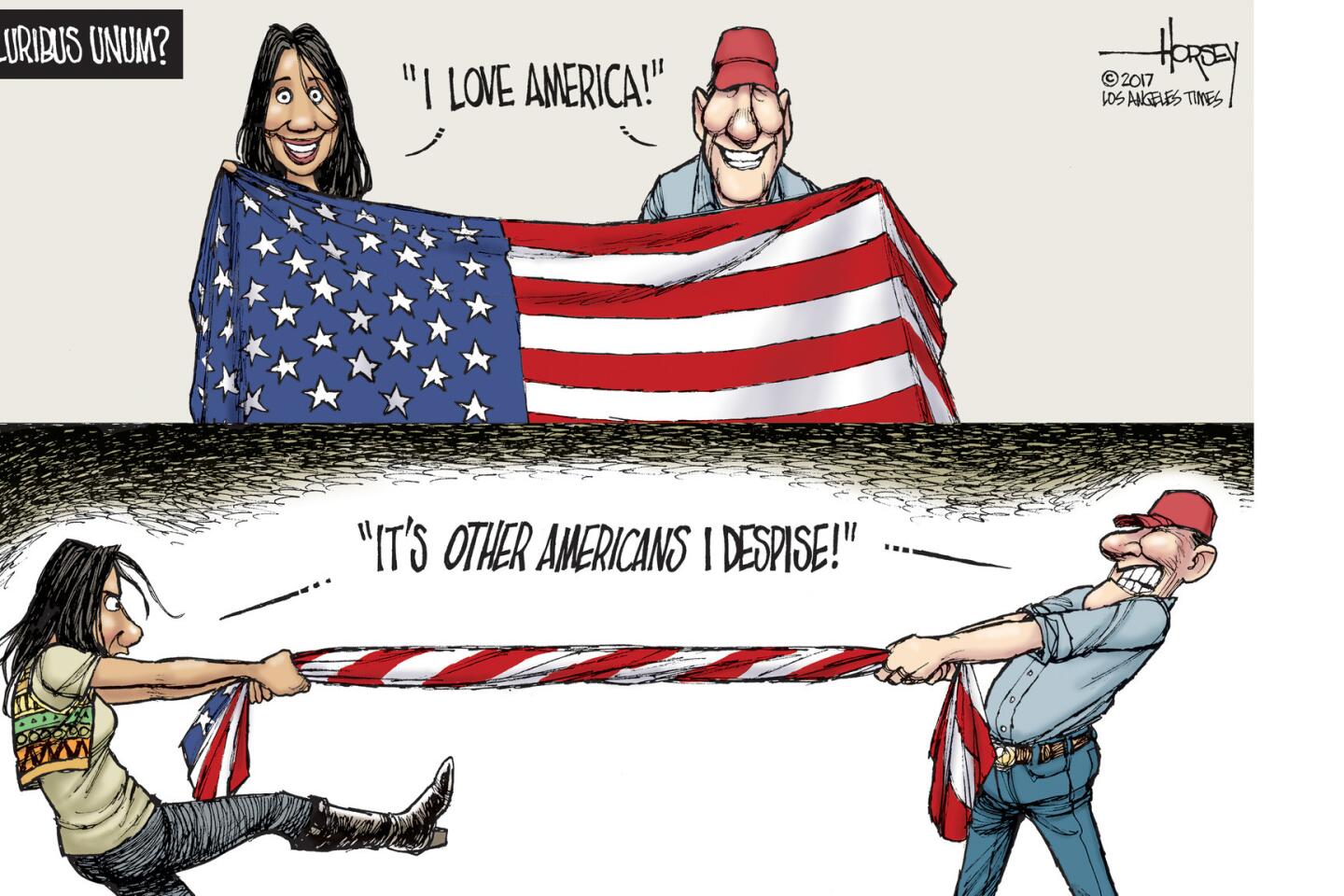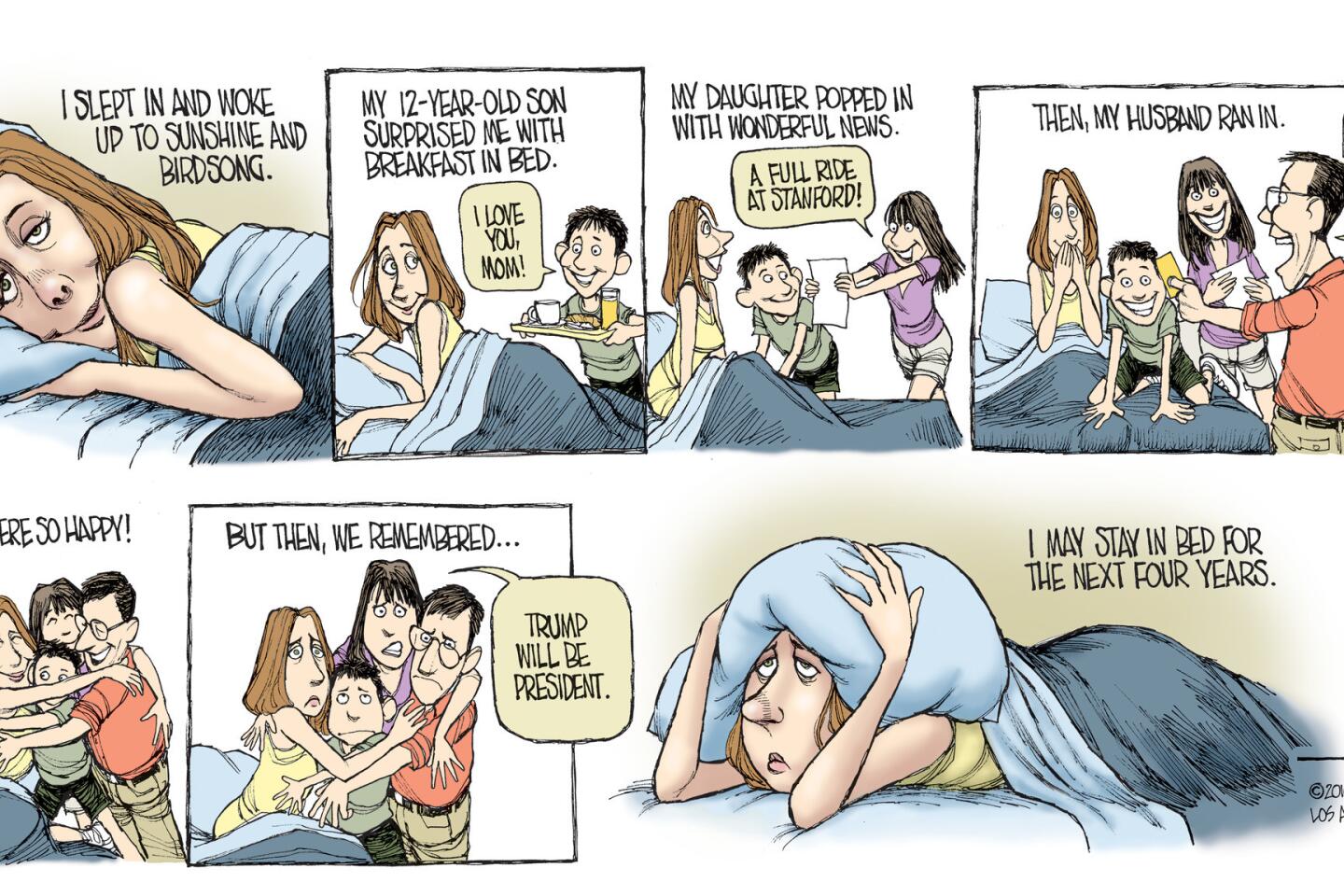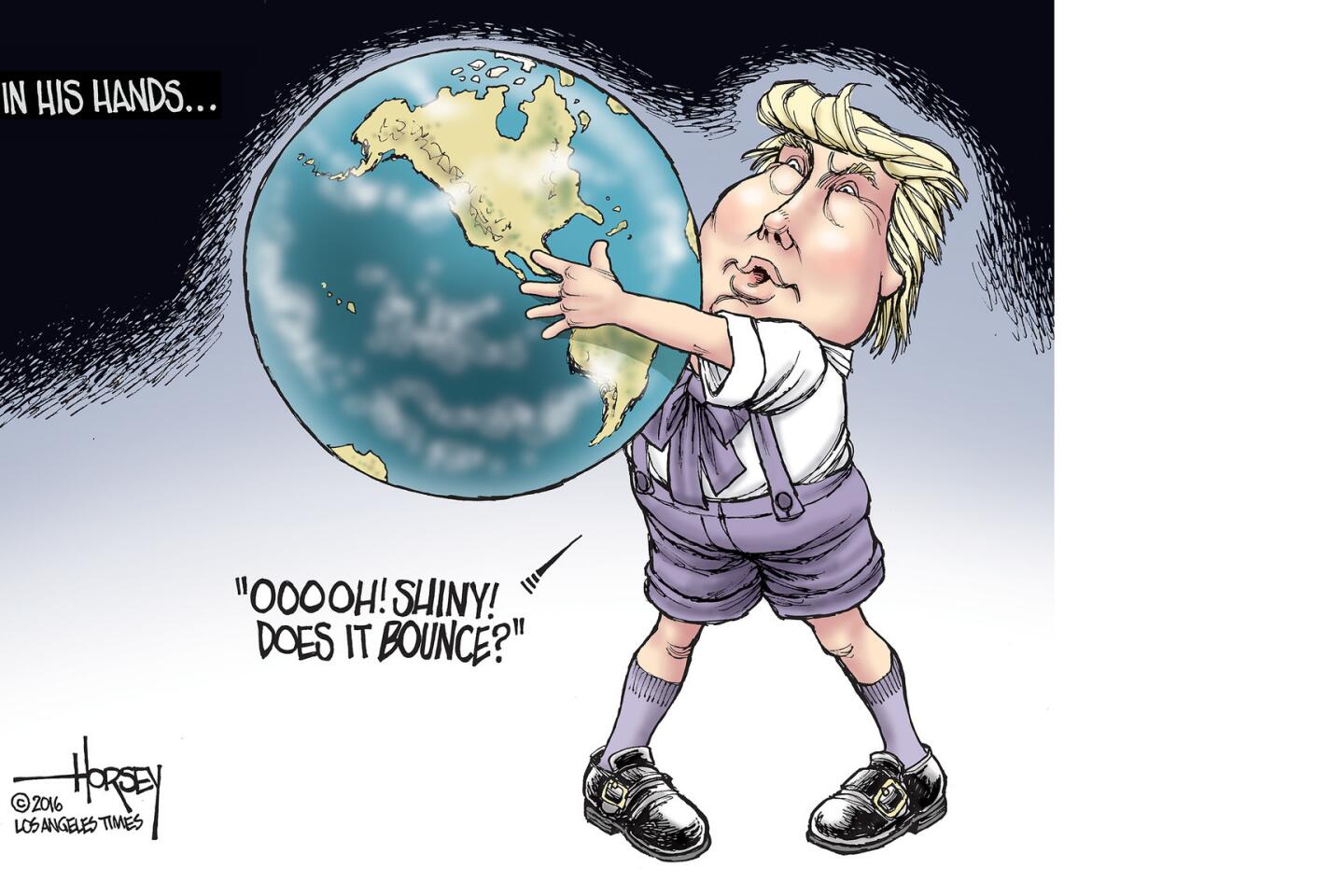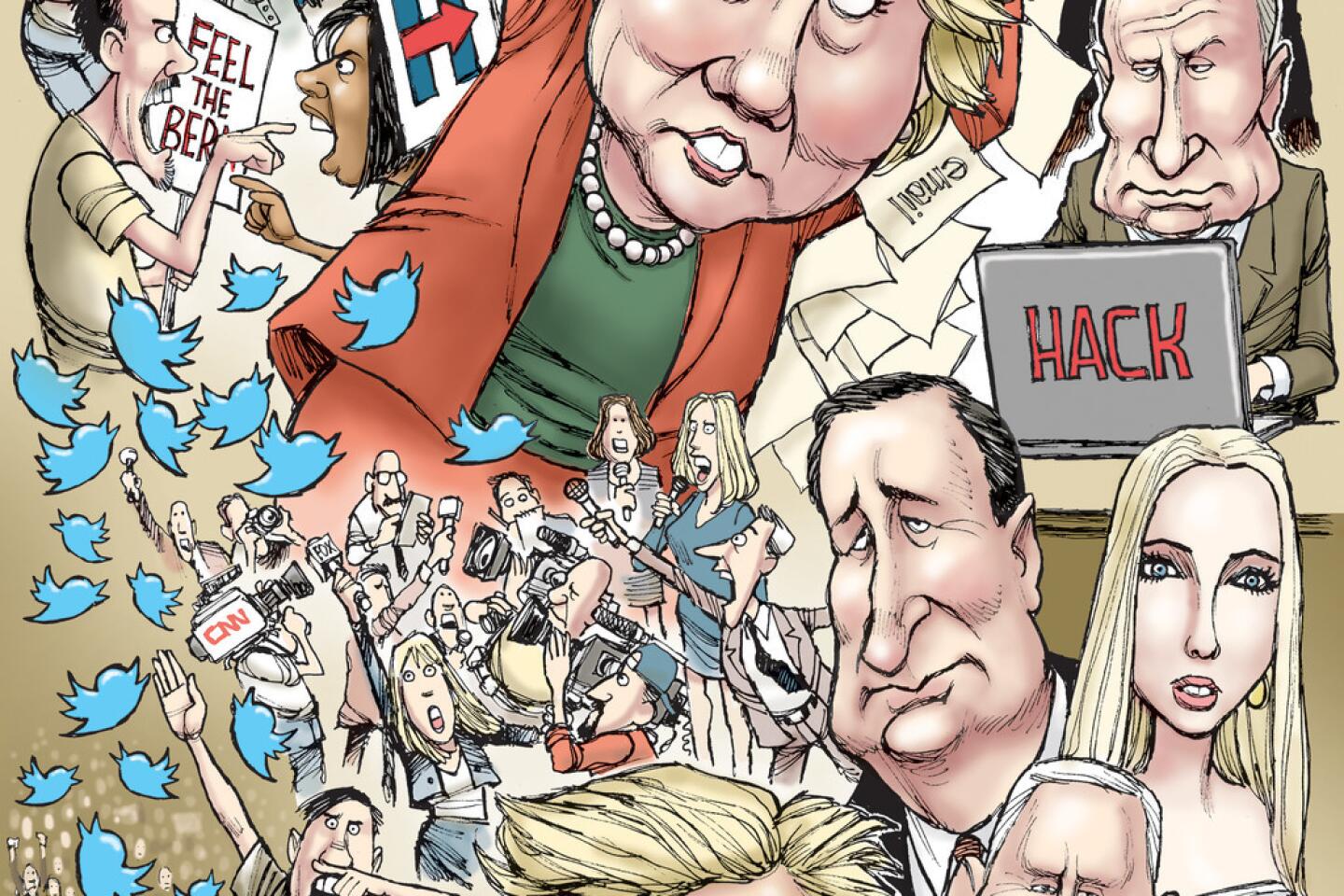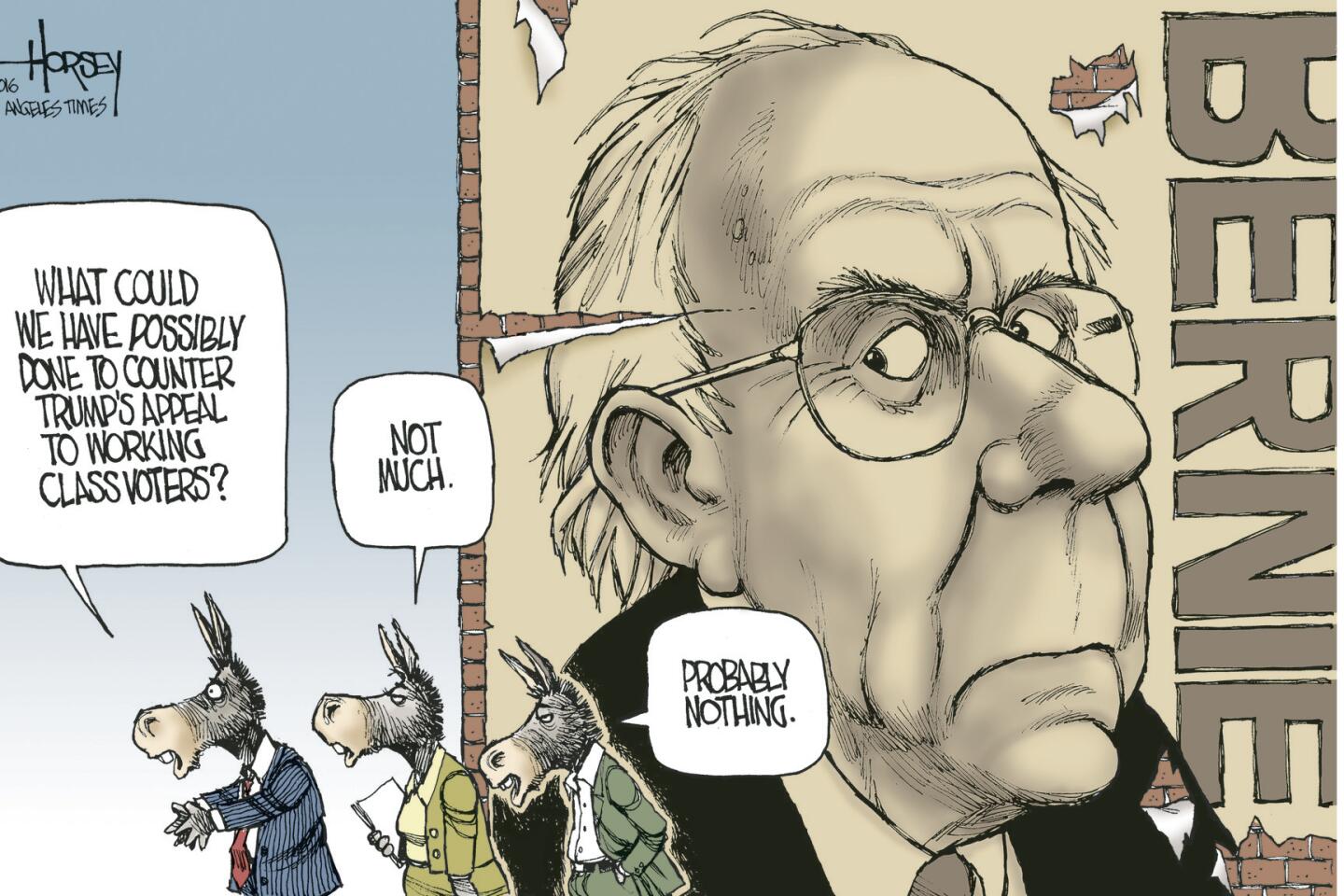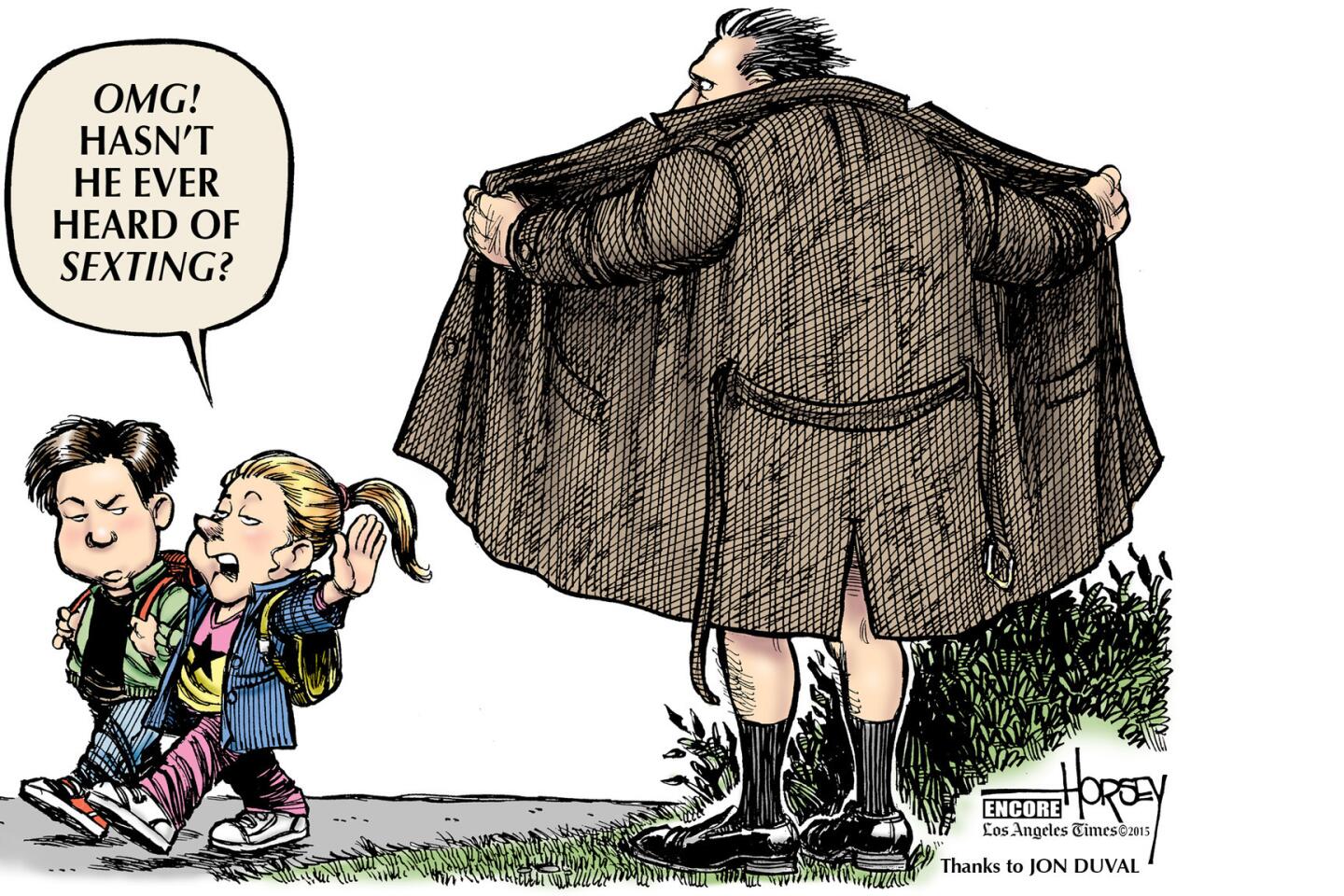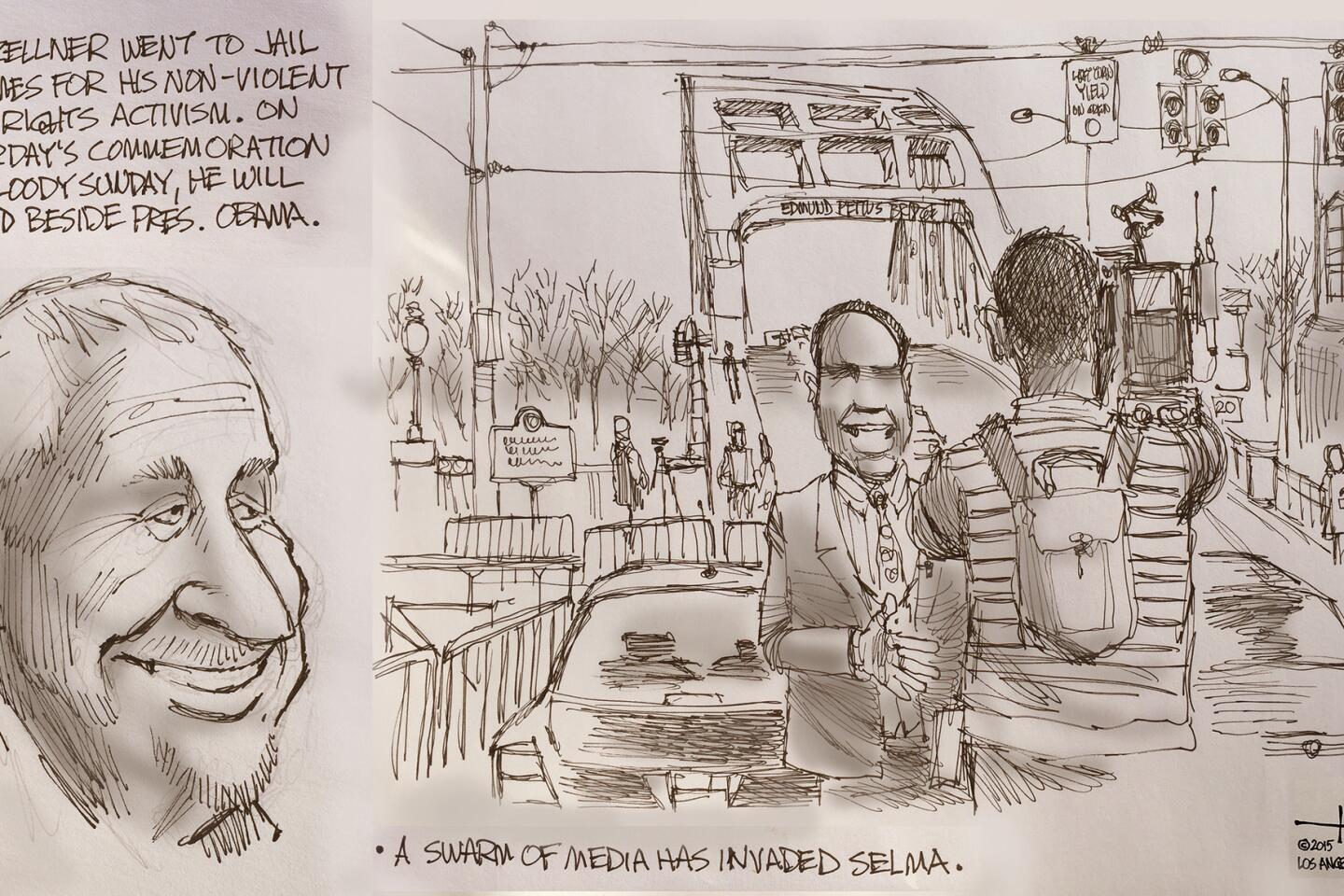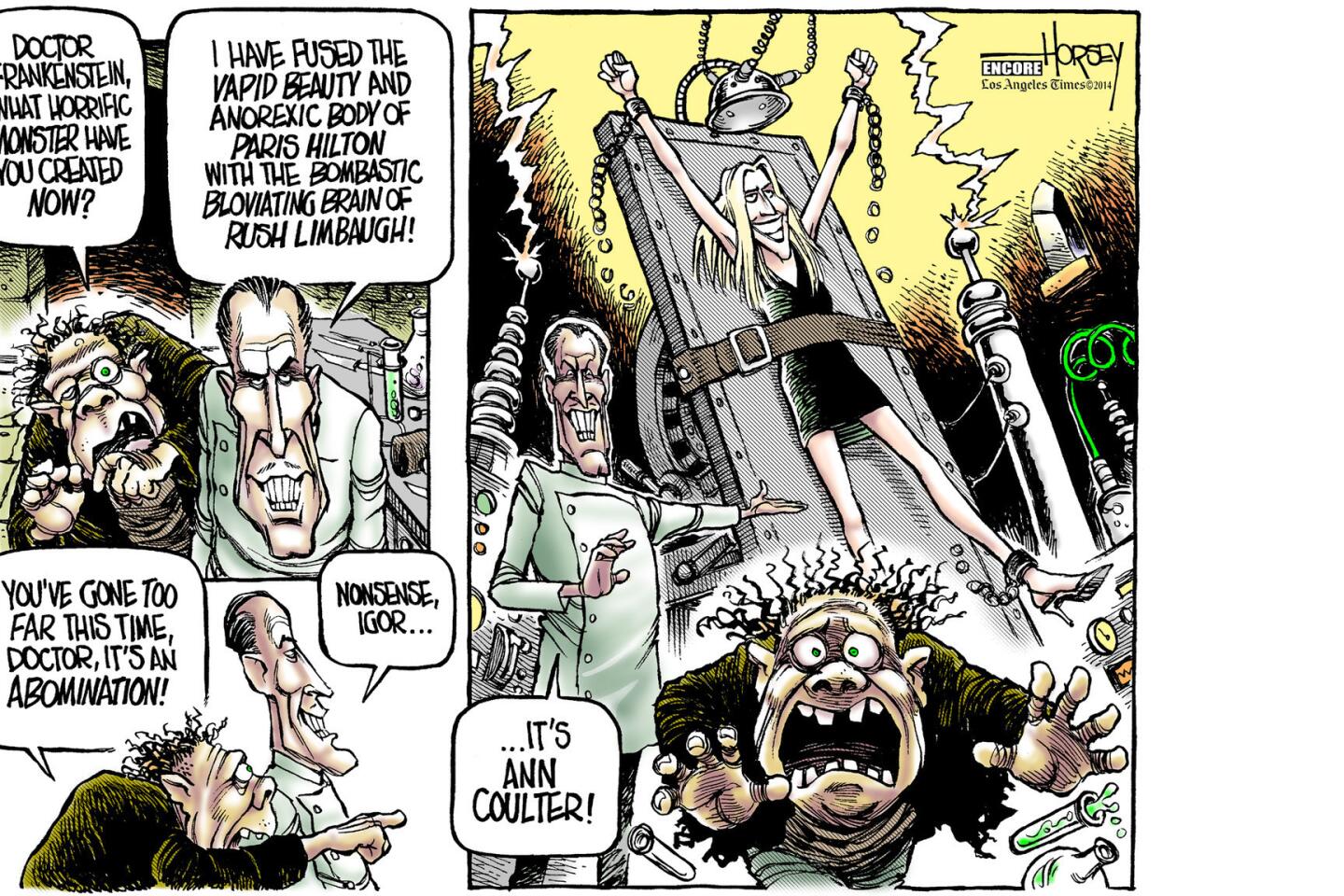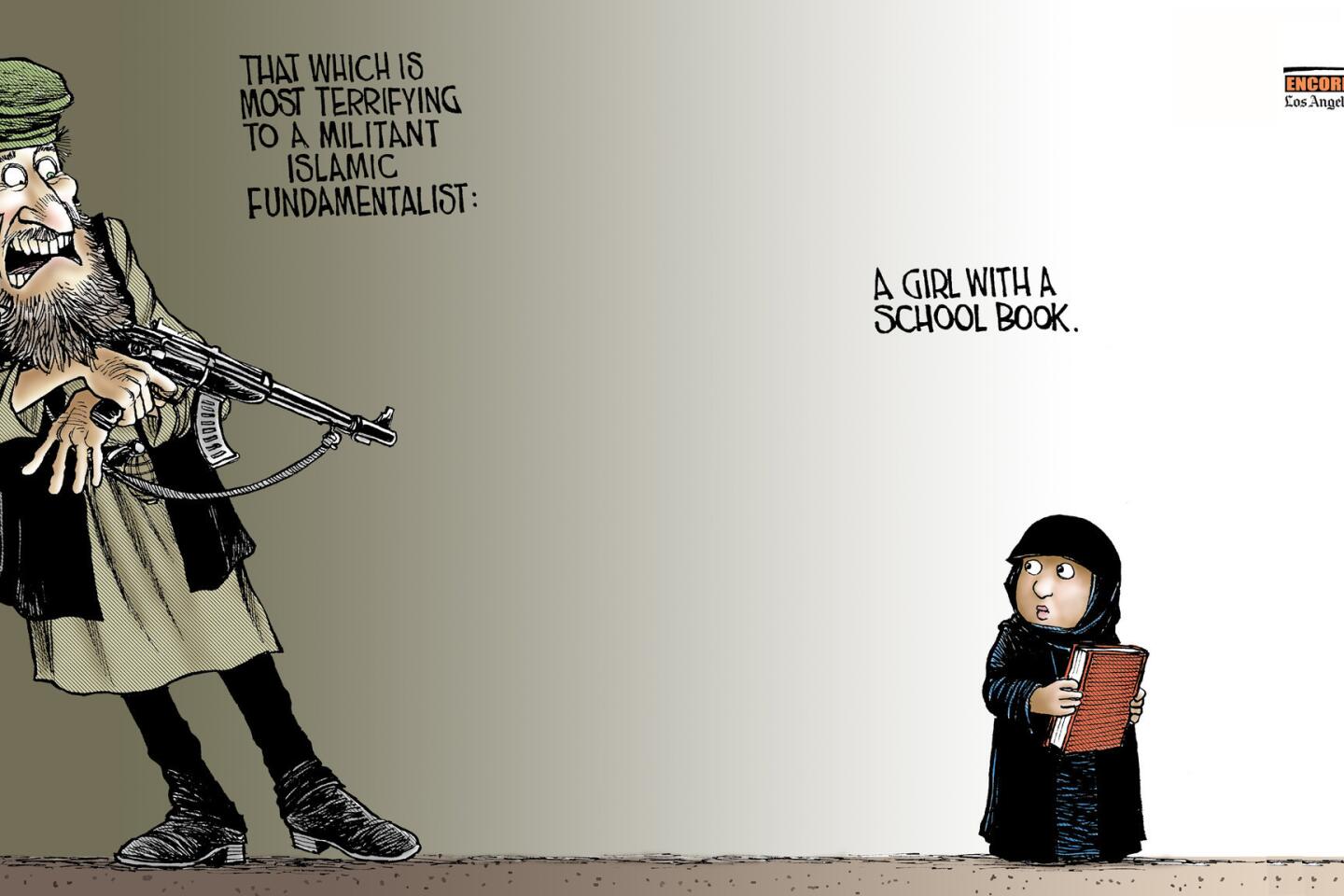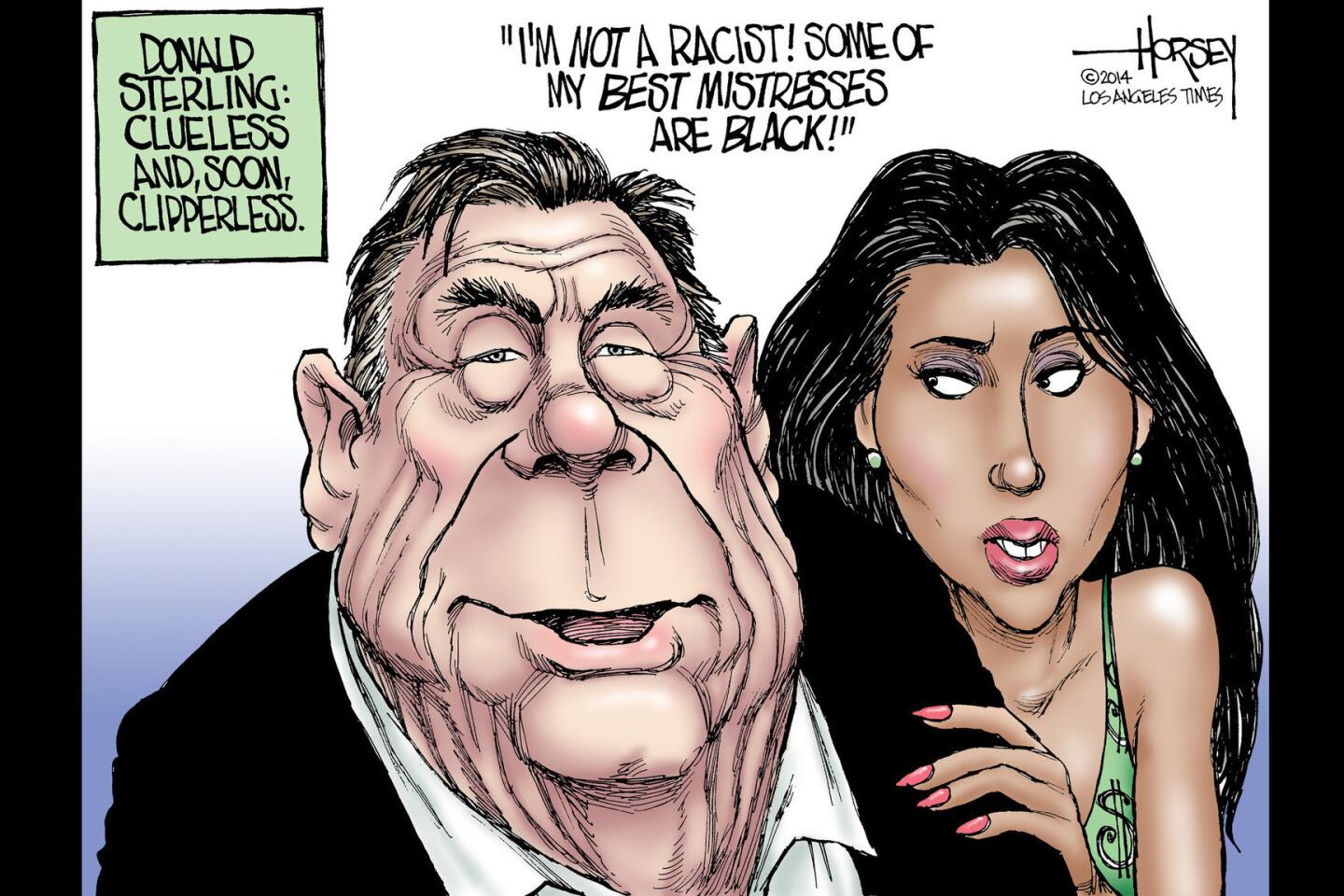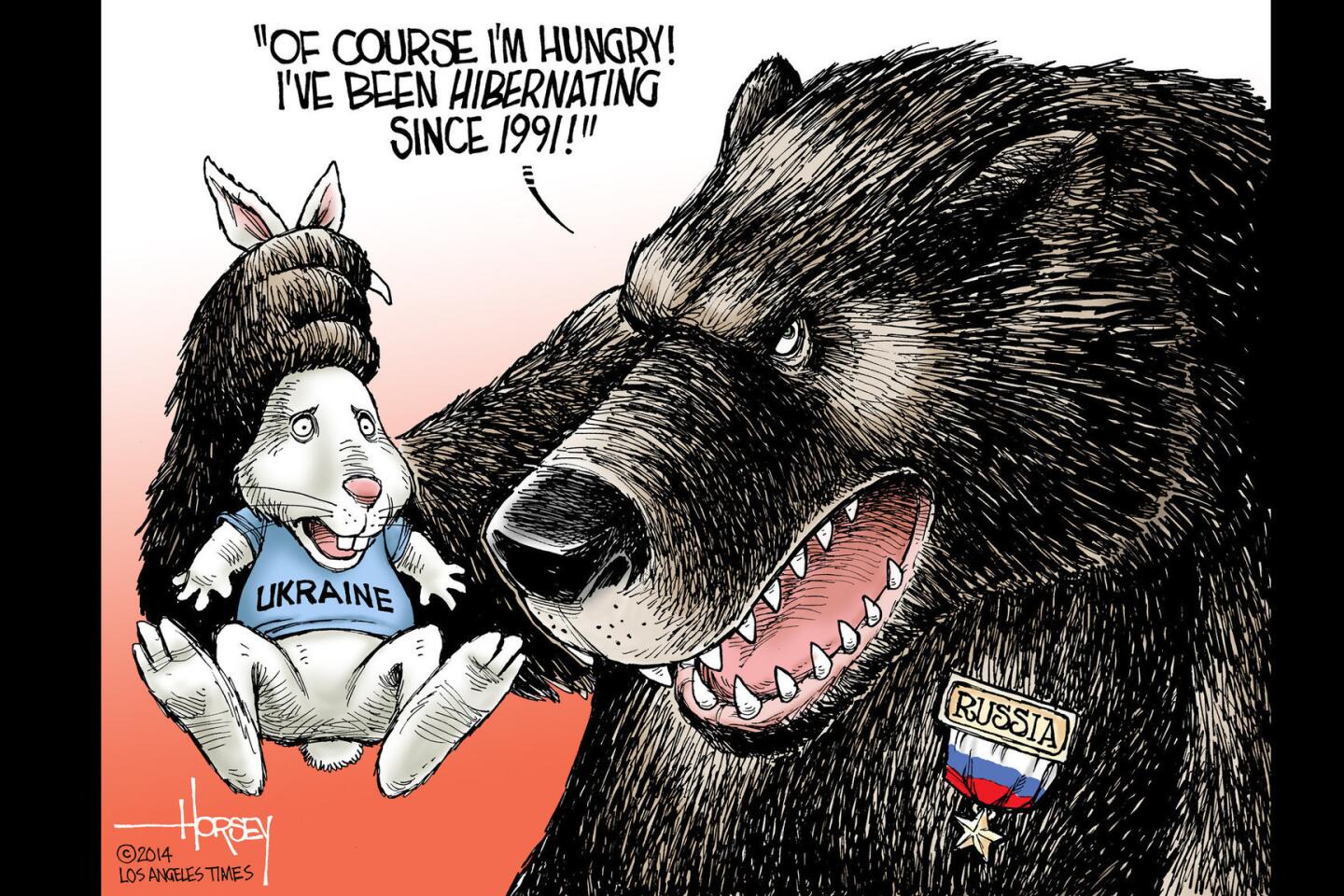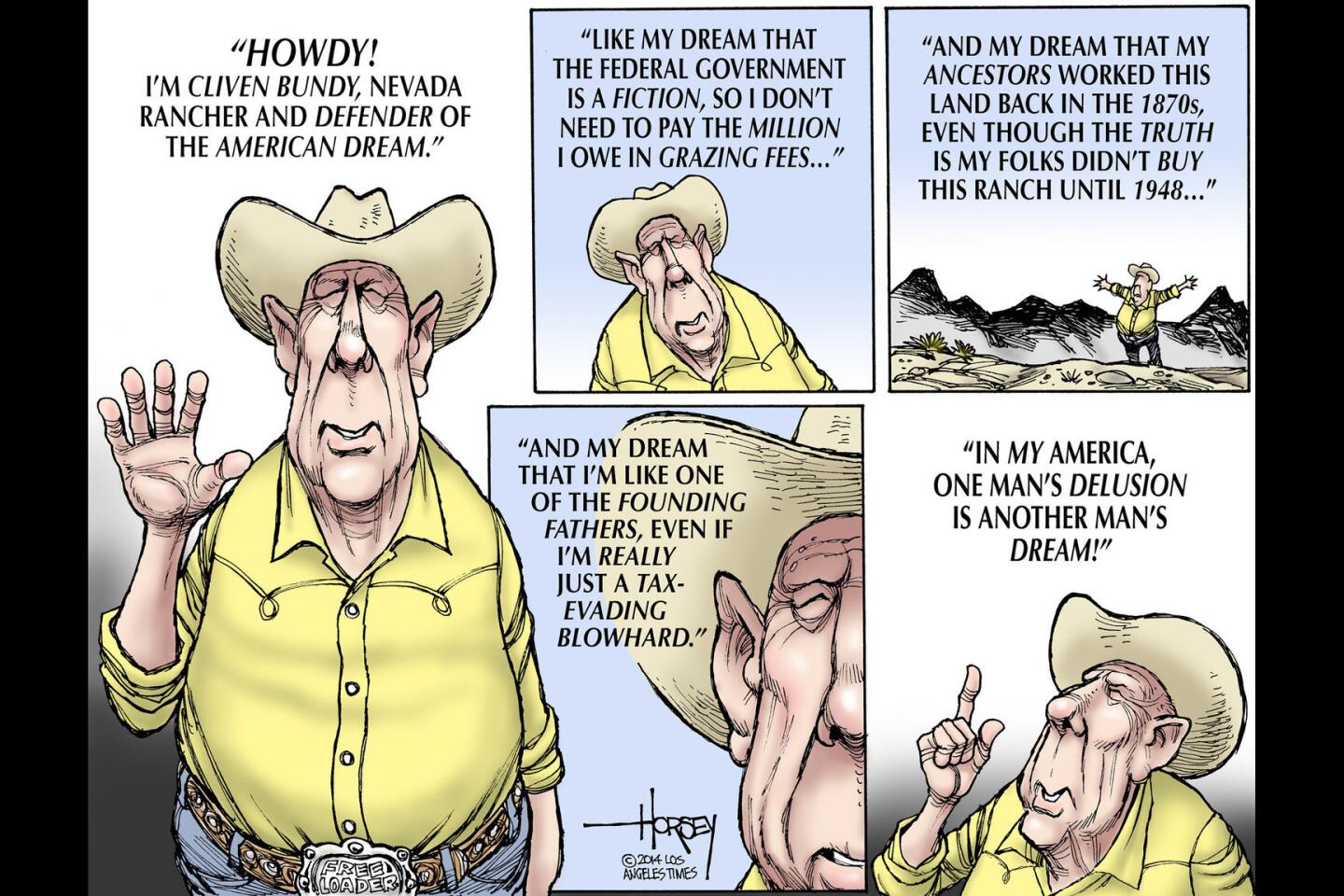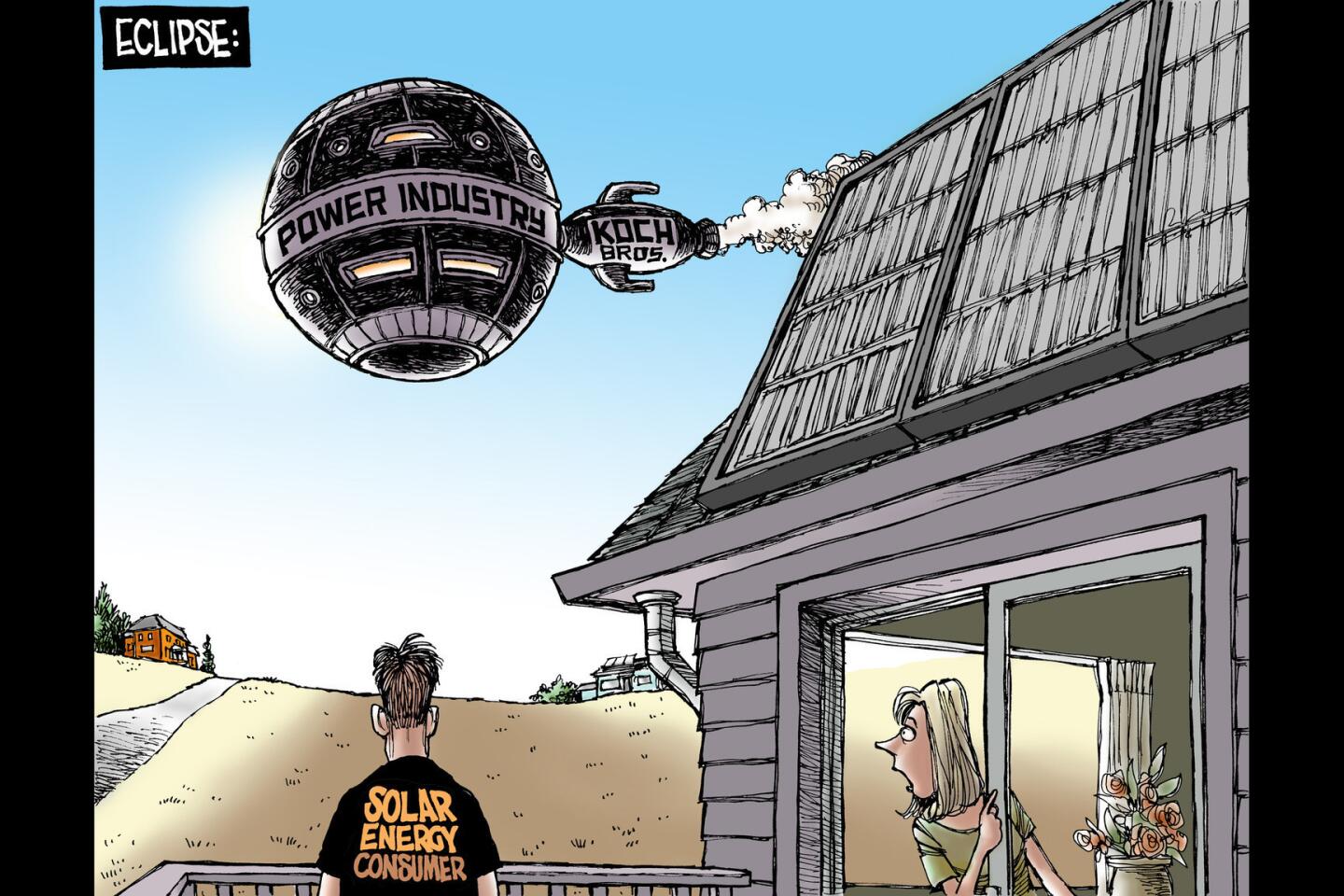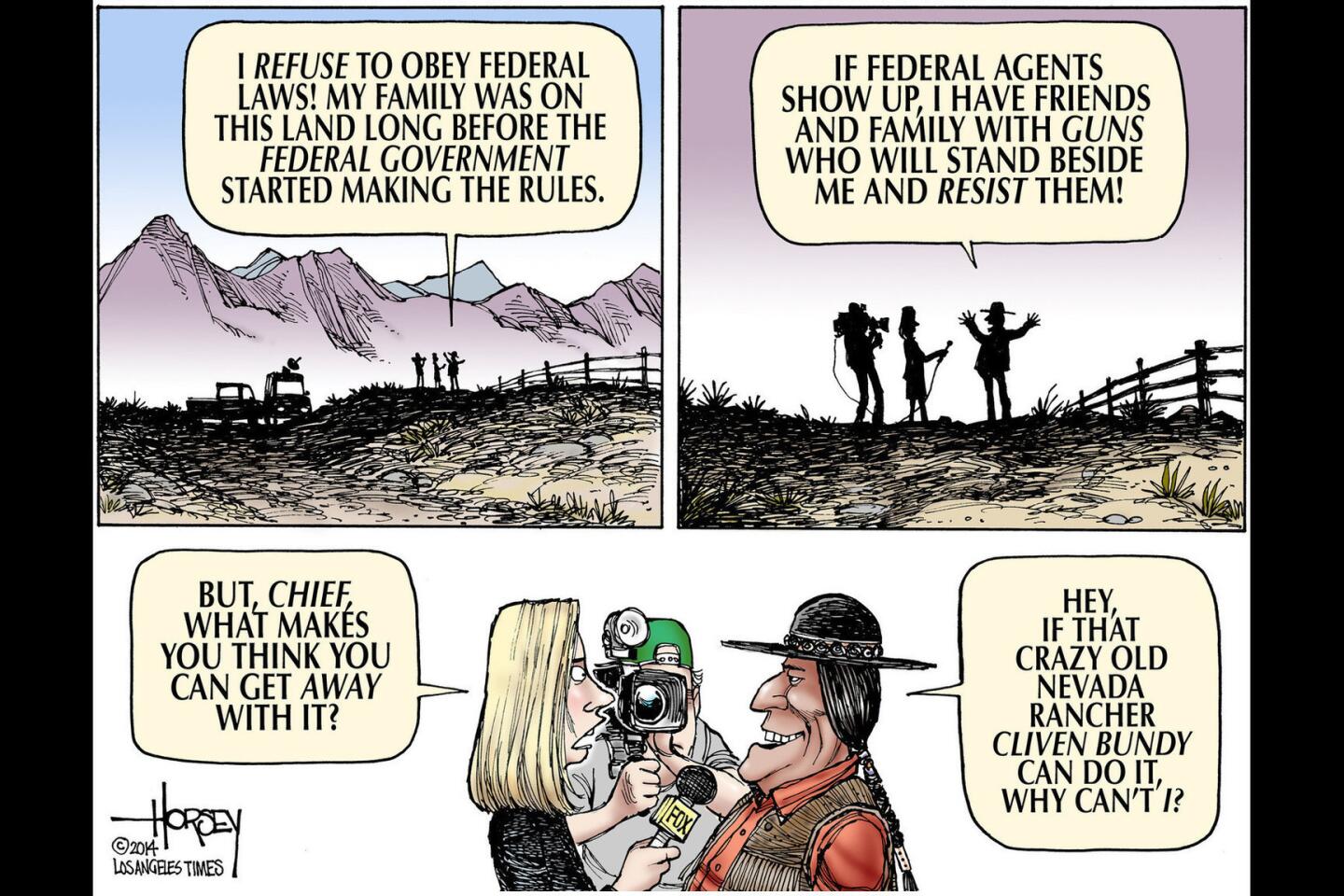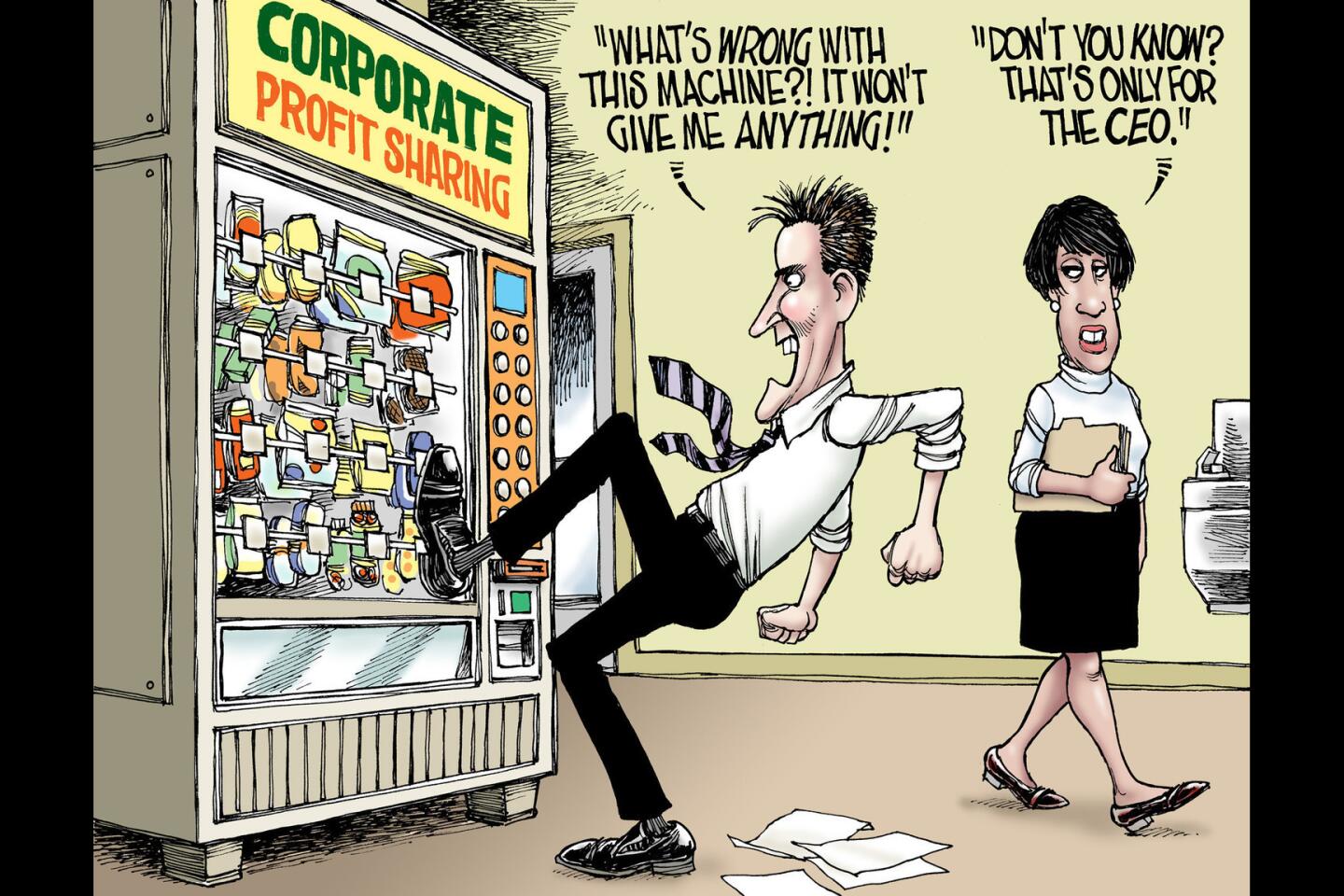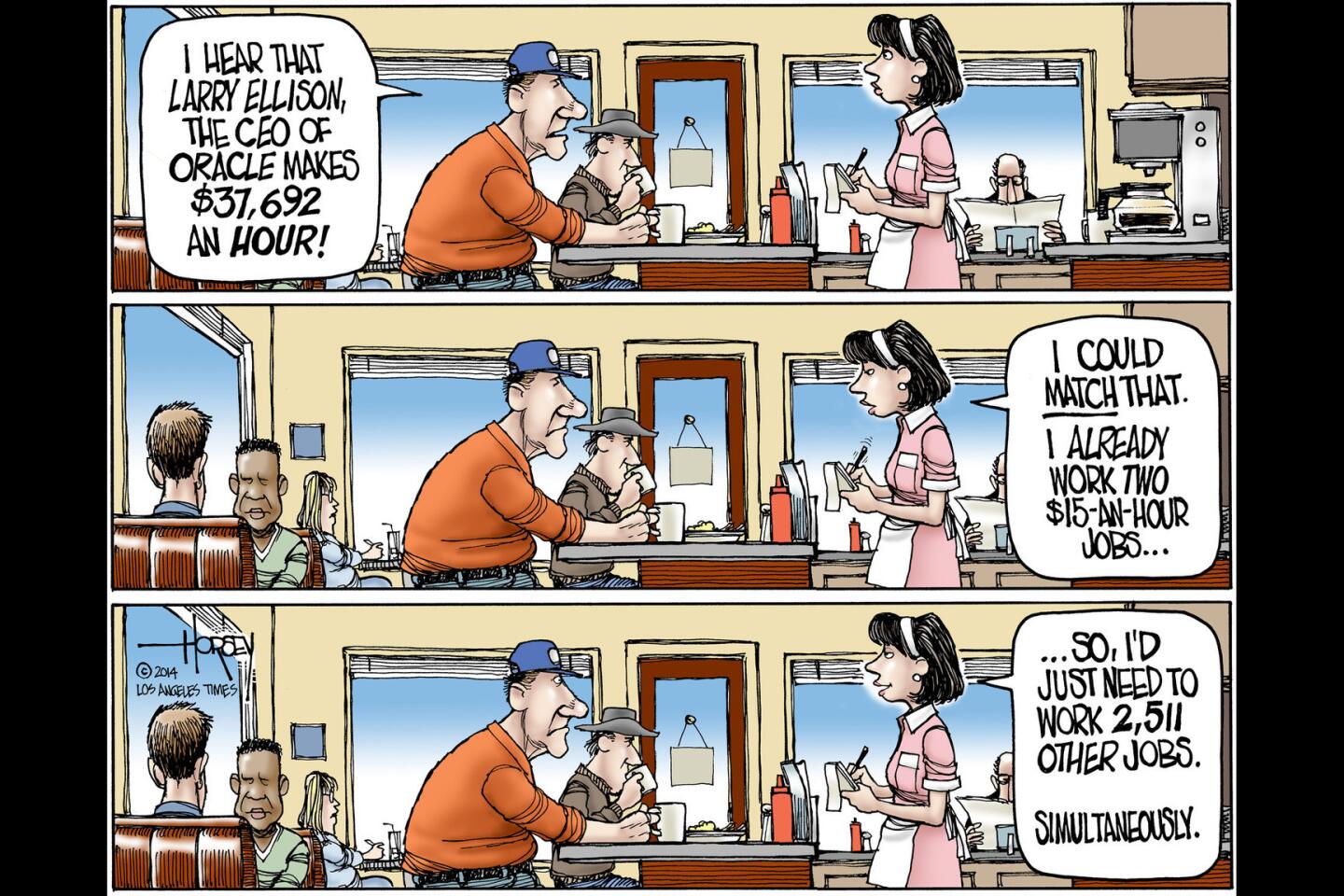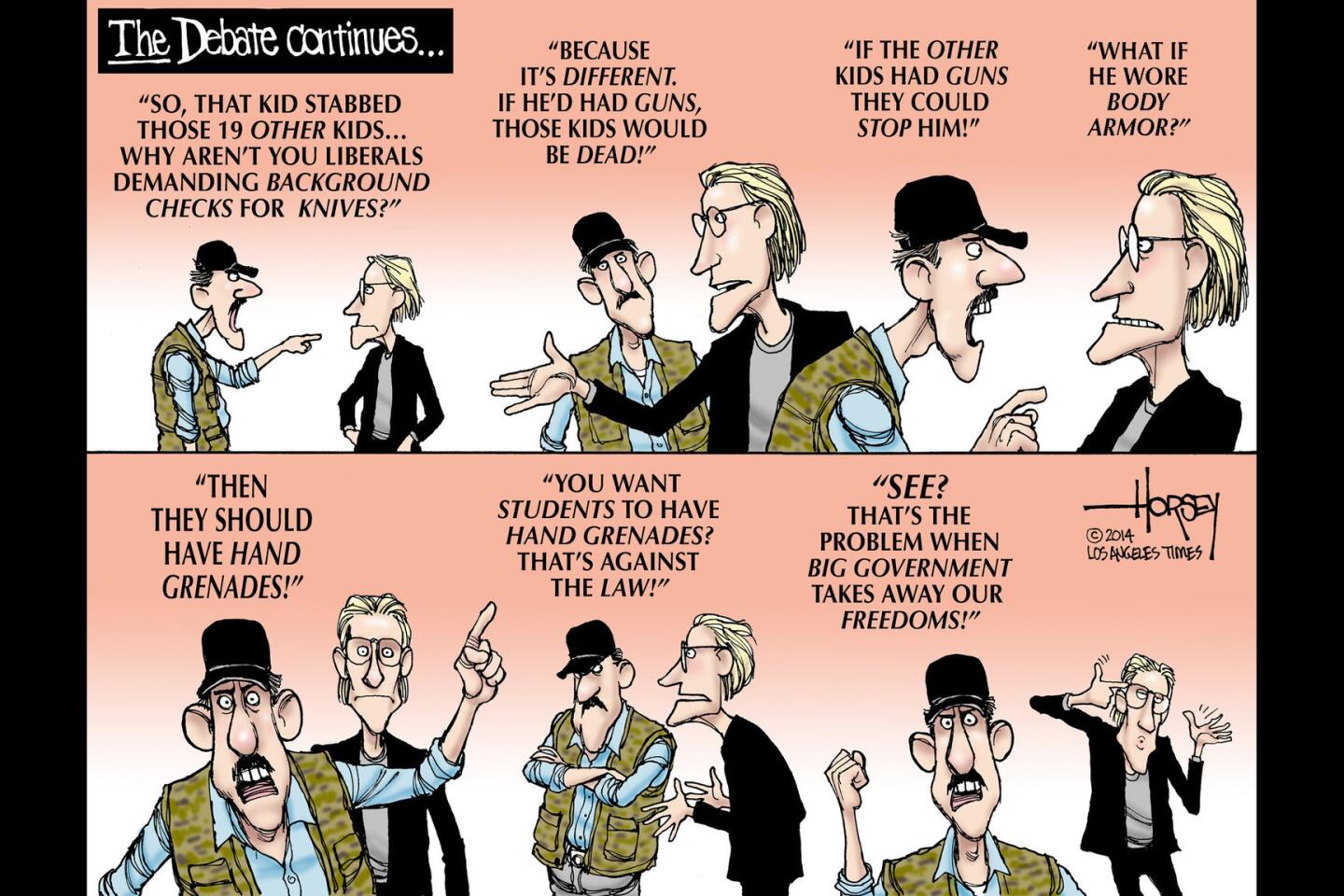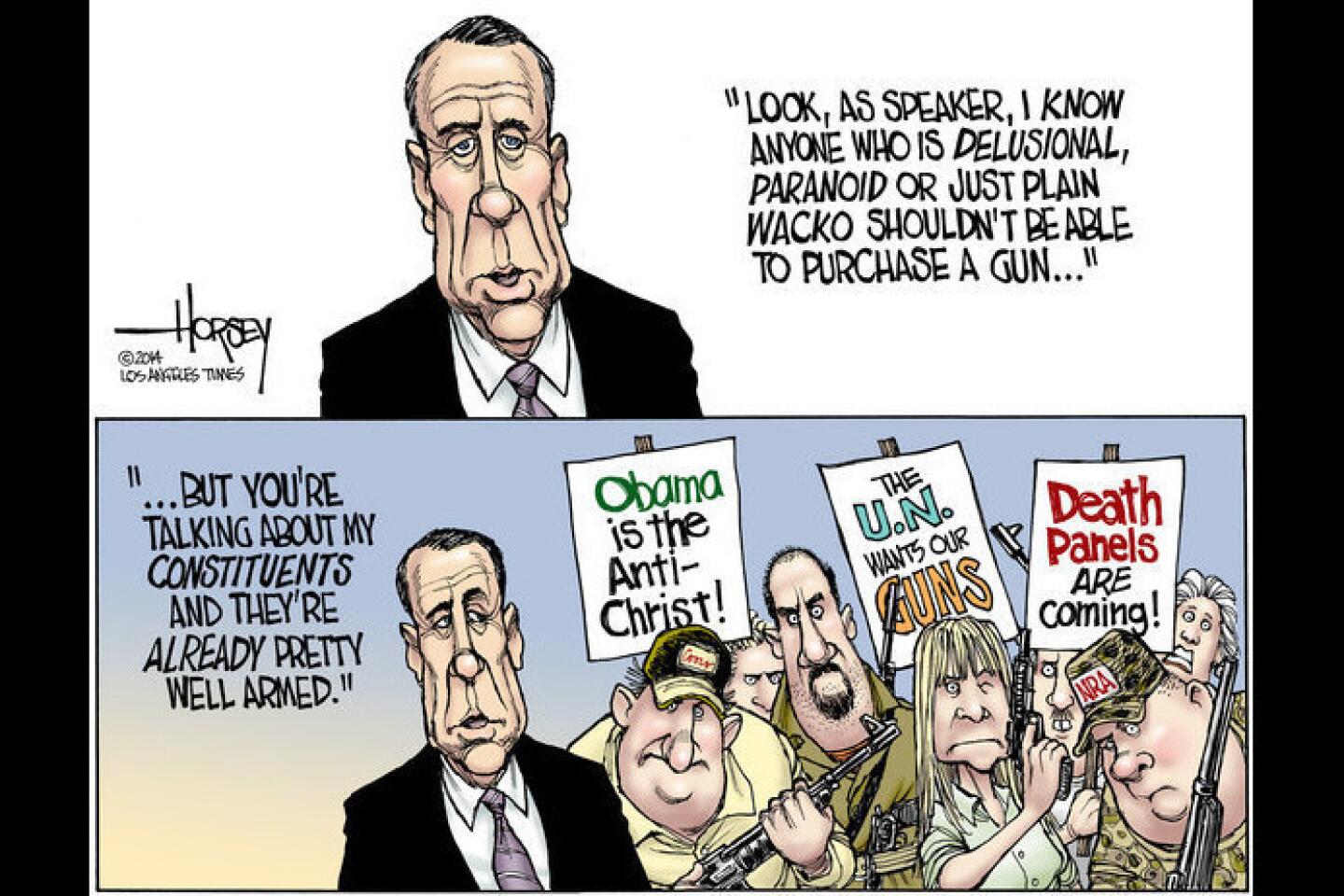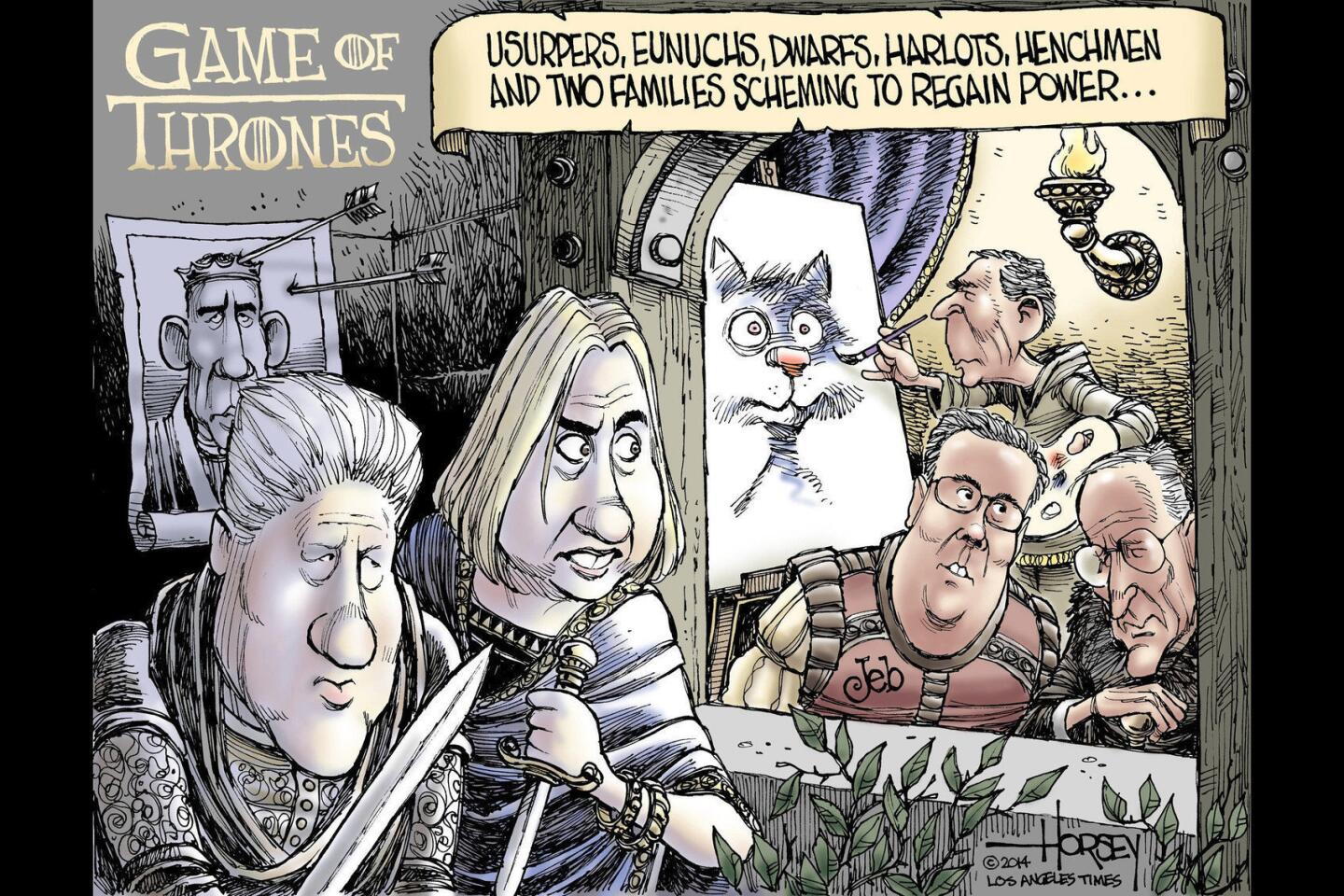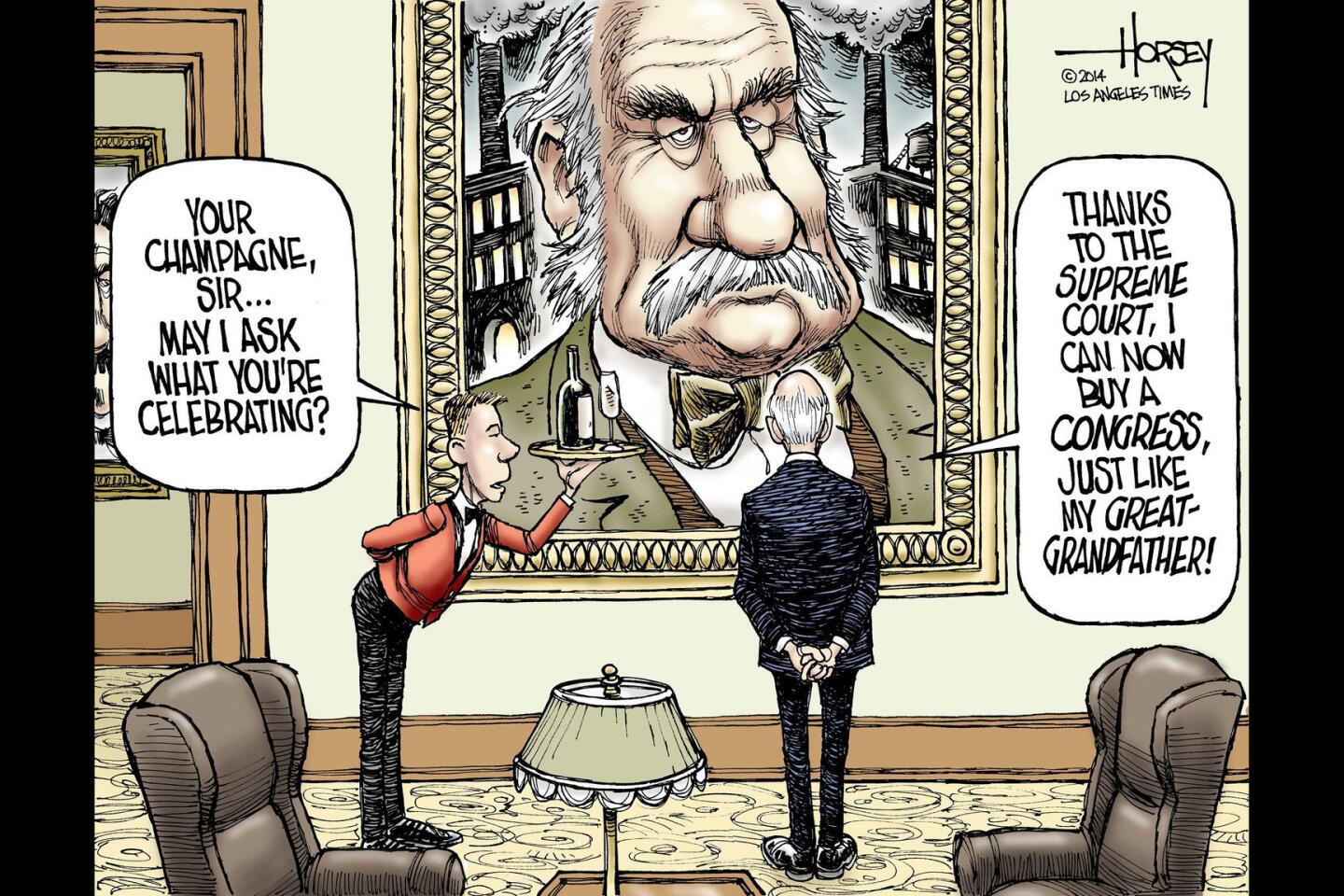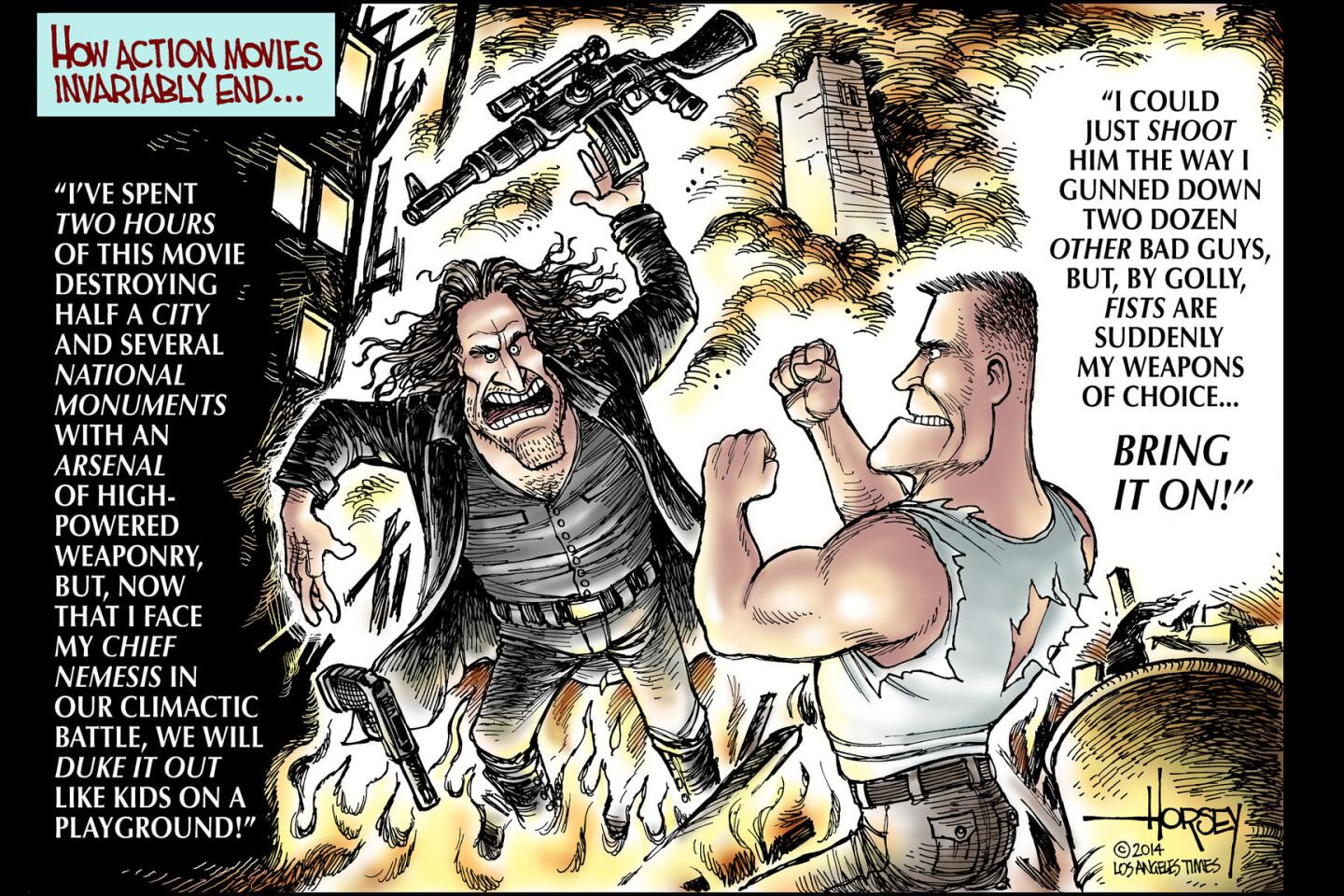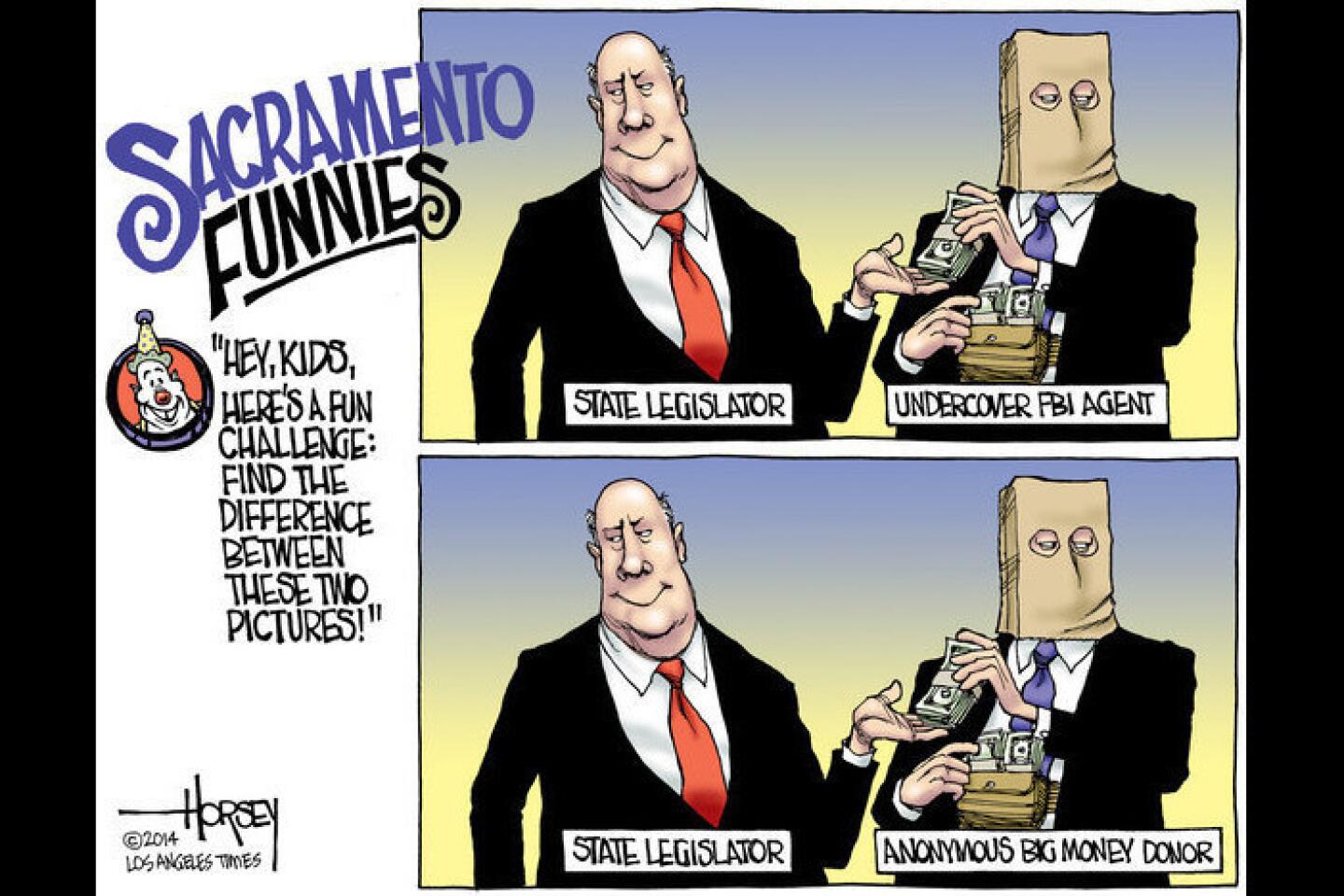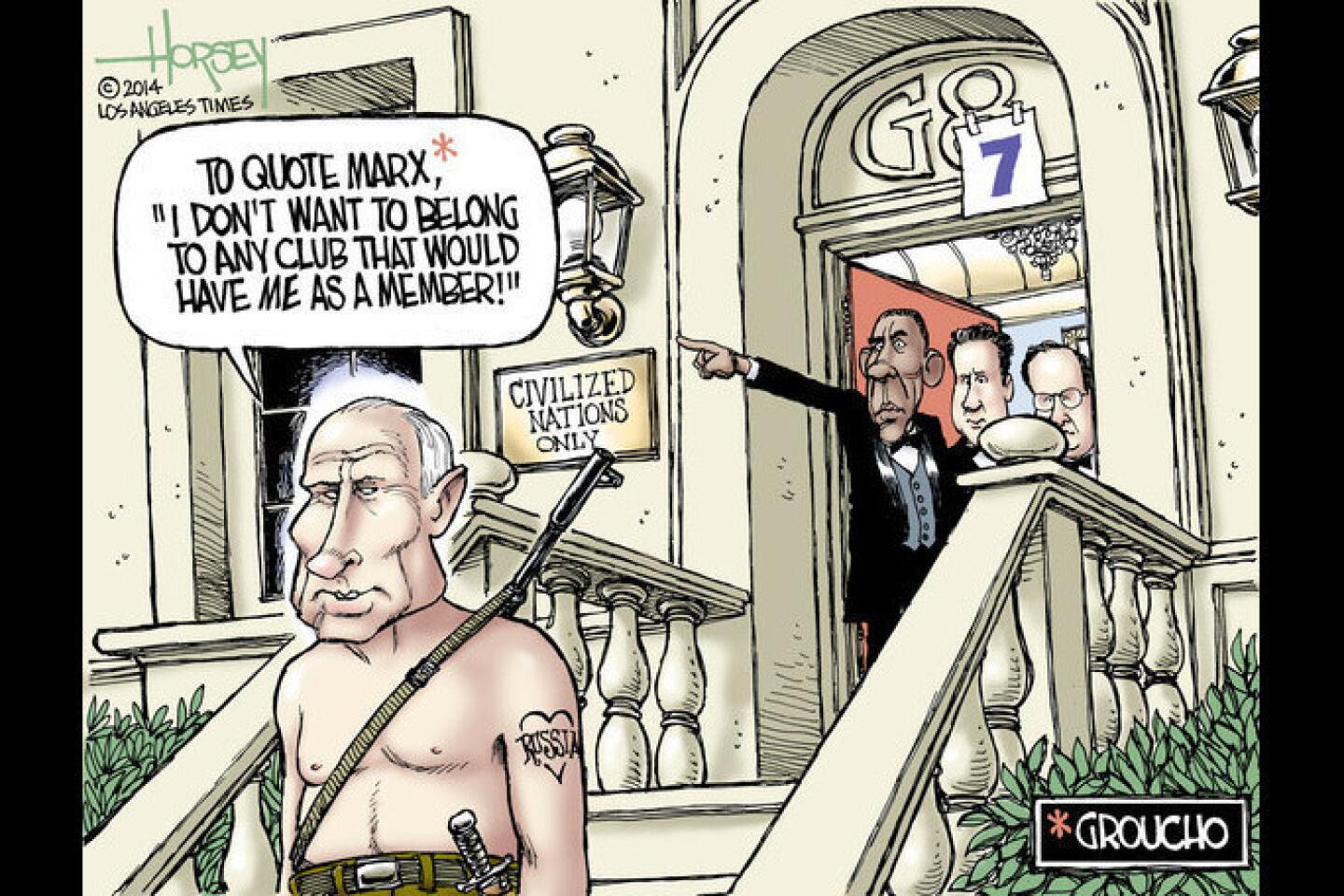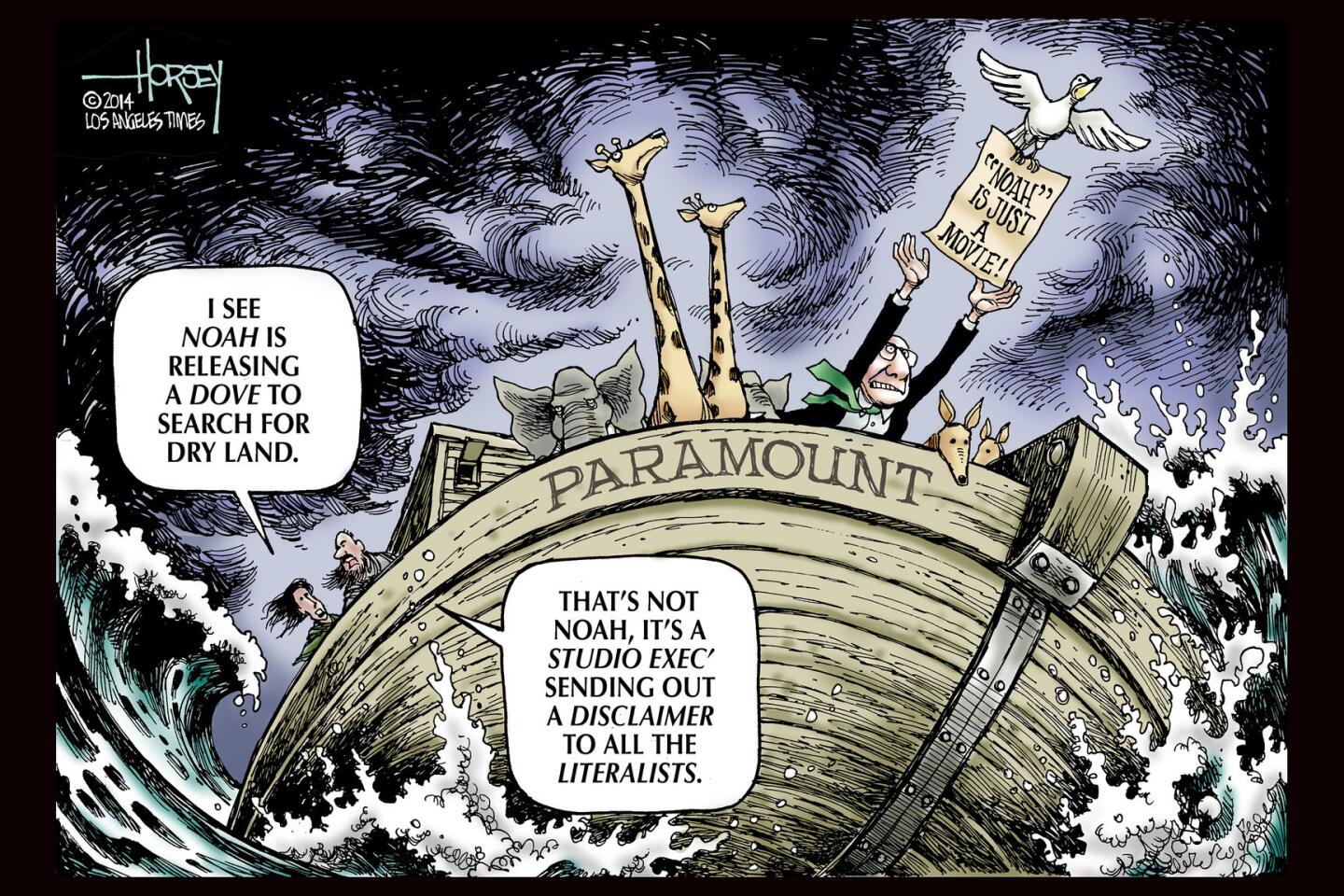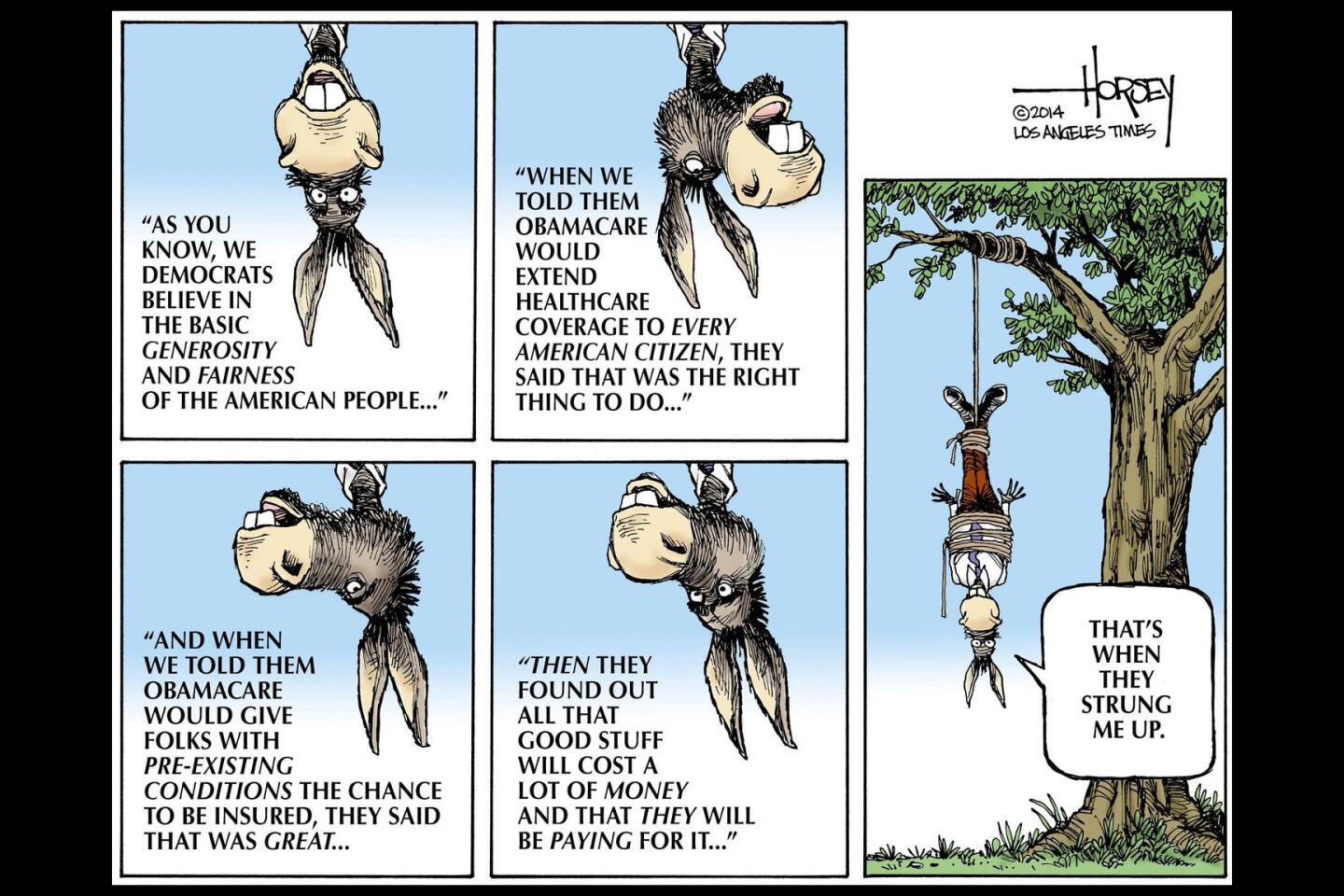With law and order his priority, Trump declares, ‘I am your voice’
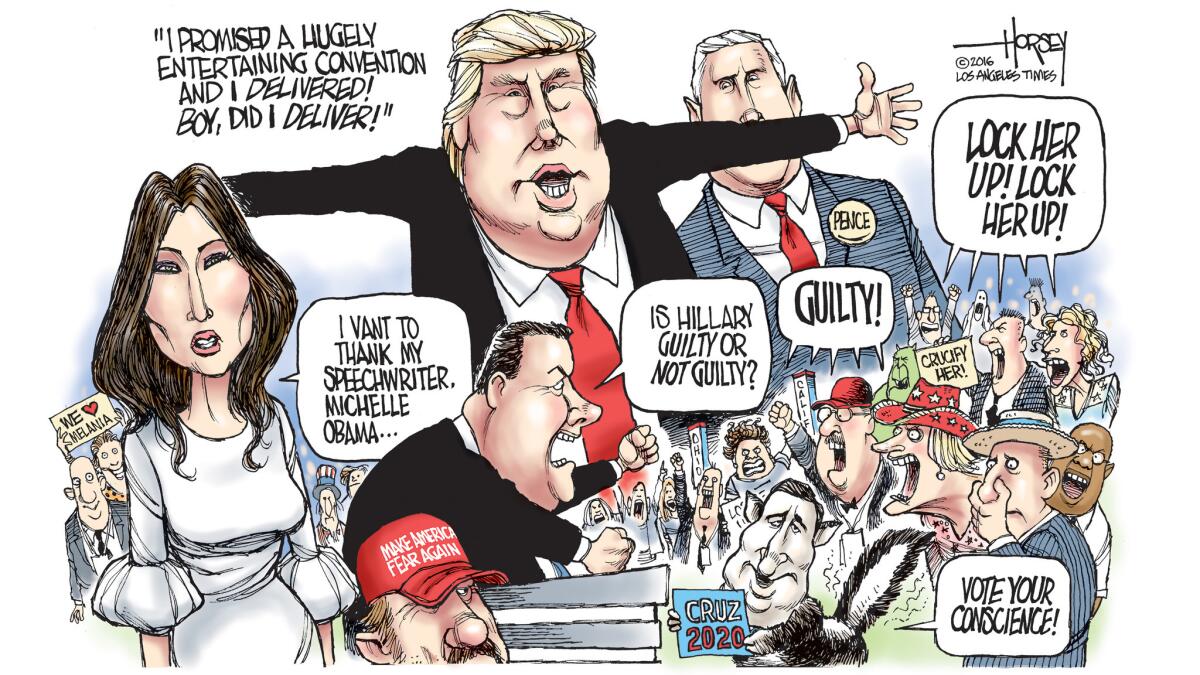
- Share via
Reporting from Cleveland — Donald Trump’s speech accepting the Republican presidential nomination was, objectively speaking, a mess. It was too long, too angry, too humorless, too mendacious, too repetitious, not at all poetic and poorly delivered — but it might have worked. With Trump, it’s hard to know.
Trump’s speeches on the campaign trail are improvisational riffs on a few standard themes that are barely speeches at all, but they worked well enough to win him the nomination. Maybe this one big speech can win him the election. That depends on whether the few remaining voters who have not made up their minds are as scared silly as Trump thinks they should be and are made to feel reassured when he tells them, “I am your voice. I am with you, I will fight for you and I will win for you.”
Those words are the core message of the Trump campaign, the promises of an unlikely populist leader, a very rich man who claims to have a real affinity for carpenters, bricklayers, coal miners and the struggling common people of all races in this country who believe the system is rigged against them. If that message has enough appeal among America’s many disaffected voters, it may not matter how poorly it was delivered here Thursday night.
Trump makes fun of politicians who use a teleprompter. Such ridicule masks the envy of a man who is visibly uncomfortable with the device. His daughter, Ivanka, was poised and polished as she read the introduction of her father off the big scrolling text screen across the convention floor. Trump, by contrast, looked stiff, grim and angry. He recited an endless litany of awful circumstances — disturbing crime statistics, murders by immigrants, drug gangs slipping across porous borders, terror attacks, cop killings, feckless Democrats conducting a disastrous foreign policy, terrible trade deals, a military that needs a total rebuild — plenty to make someone mad. But his angry tone may have been partly the result of being boxed into reading a script.
One of Trump’s most relaxed moments came when he improvised. After reading a couple of passages in which he pledged to defend LGBTQ people from attacks, he paused and, in an aside to his audience (which had to include more than a few people troubled by same-sex marriage and appalled by the “gay lifestyle”), said, “And it’s so nice, as a Republican, to hear you cheering for what I just said.”
It was a rare moment when the personal attraction of the man showed through. Trump is a New Yorker with gay friends and acquaintances who does not share the homophobic attitudes of many of his fellow Republicans (which doesn’t mean he didn’t let such attitudes slip into the party platform). One of his gay friends, Silicon Valley entrepreneur Peter Thiel, preceded him on the convention stage and made news by declaring, “Every American has a unique identity. I am proud to be gay. I am proud to be a Republican, but most of all I am proud to be an American.”
Thiel was one of three speakers on the convention’s final night who finally provided the anecdotal testaments to Trump’s good qualities that had been strangely lacking through a week devoted mostly to demonizing Hillary Clinton. The other two were Tom Barrack, a Trump partner in business and head of the investment firm Colony Capital, and eldest daughter Ivanka. The man they described seemed generous, smart, likable, a very hard worker with big ideas and big accomplishments in the world of real estate development. They made the idea of a man like Trump enticing: a big-hearted businessman from outside the broken political system with the skills needed to break through the political logjams and get things done.
The question remaining, though, is whether that idea of Trump matches the reality of Trump. Does his life of wheeling and dealing in the construction business make him interpret every complex international relationship as just another transaction rather than understanding the wider benefits of alliances in which the U.S. may pay more than an equal share? Does that narrow range of experience mislead Trump into promoting protectionist trade policies that conservative economists insist would be disastrous for the country? Would he really assemble an administration of the best and brightest experts from many fields and various political persuasions, or would he rely on trusted cronies and the usual suspects from the Republican brain trust?
Trump’s speech did not answer such questions. The main thing revealed in his address was that his campaign will try to scare voters into believing they need a strong man who will protect them and restore the greatness of their nation through the force of his will. To those who already support Trump, that simple idea obviously has great appeal. To others, it sounds dangerous and resonant with memories of strong men in other countries who claimed to be the voice of the people and the champion of a vigorous nationalism — leaders who promised law and order, as Trump did four times in his speech, and delivered it at frightening cost.
On the plus side, Trump has a fine brood of children. He has friends in business who admire him. In his personal interactions, he appears open to women, to gays and to minorities. He builds big buildings and makes big deals. That is his resumé and it seems a thin base on which to rest the hopes of a nation.
Follow me at @davidhorsey on Twitter
A cure for the common opinion
Get thought-provoking perspectives with our weekly newsletter.
You may occasionally receive promotional content from the Los Angeles Times.
